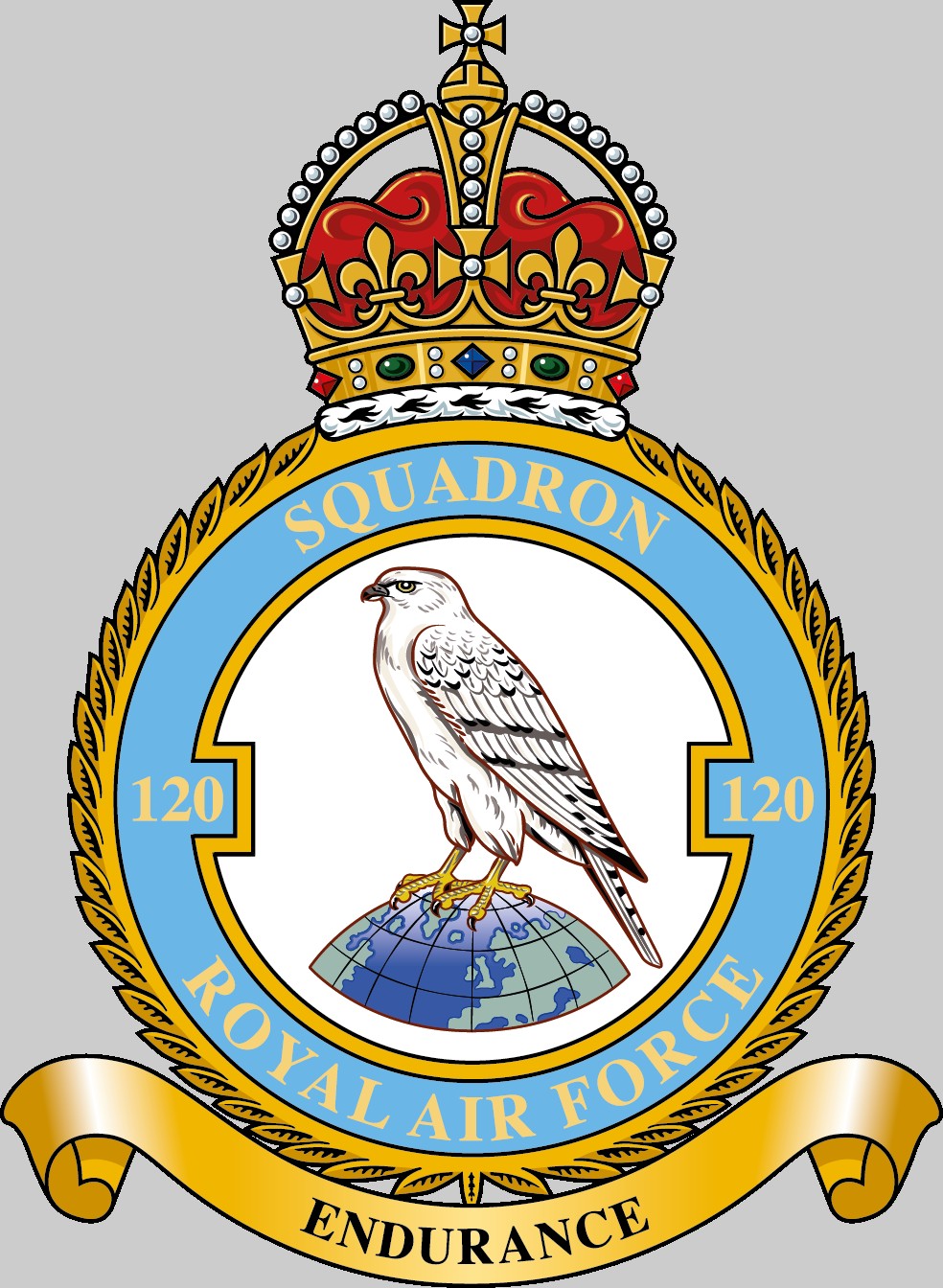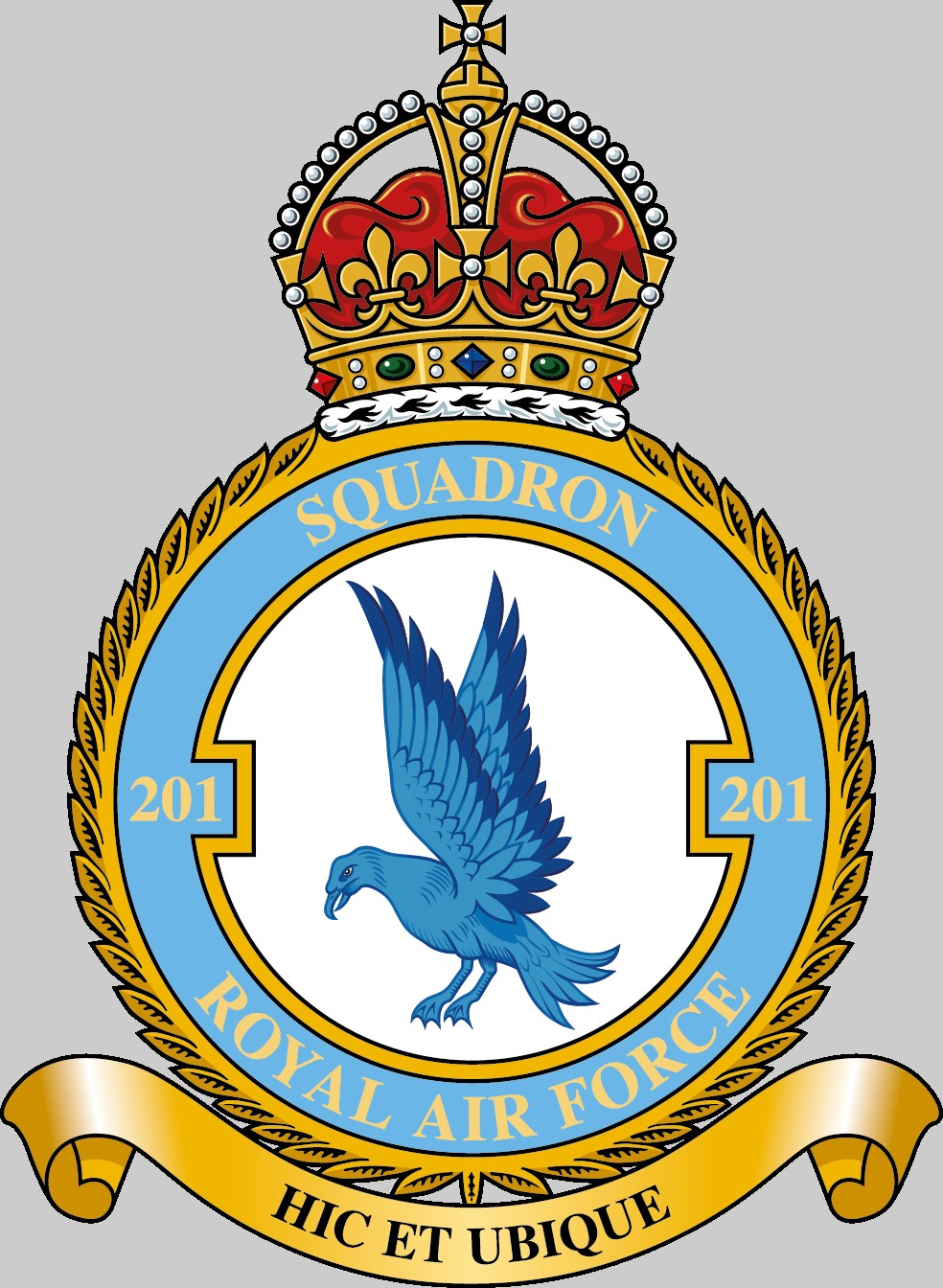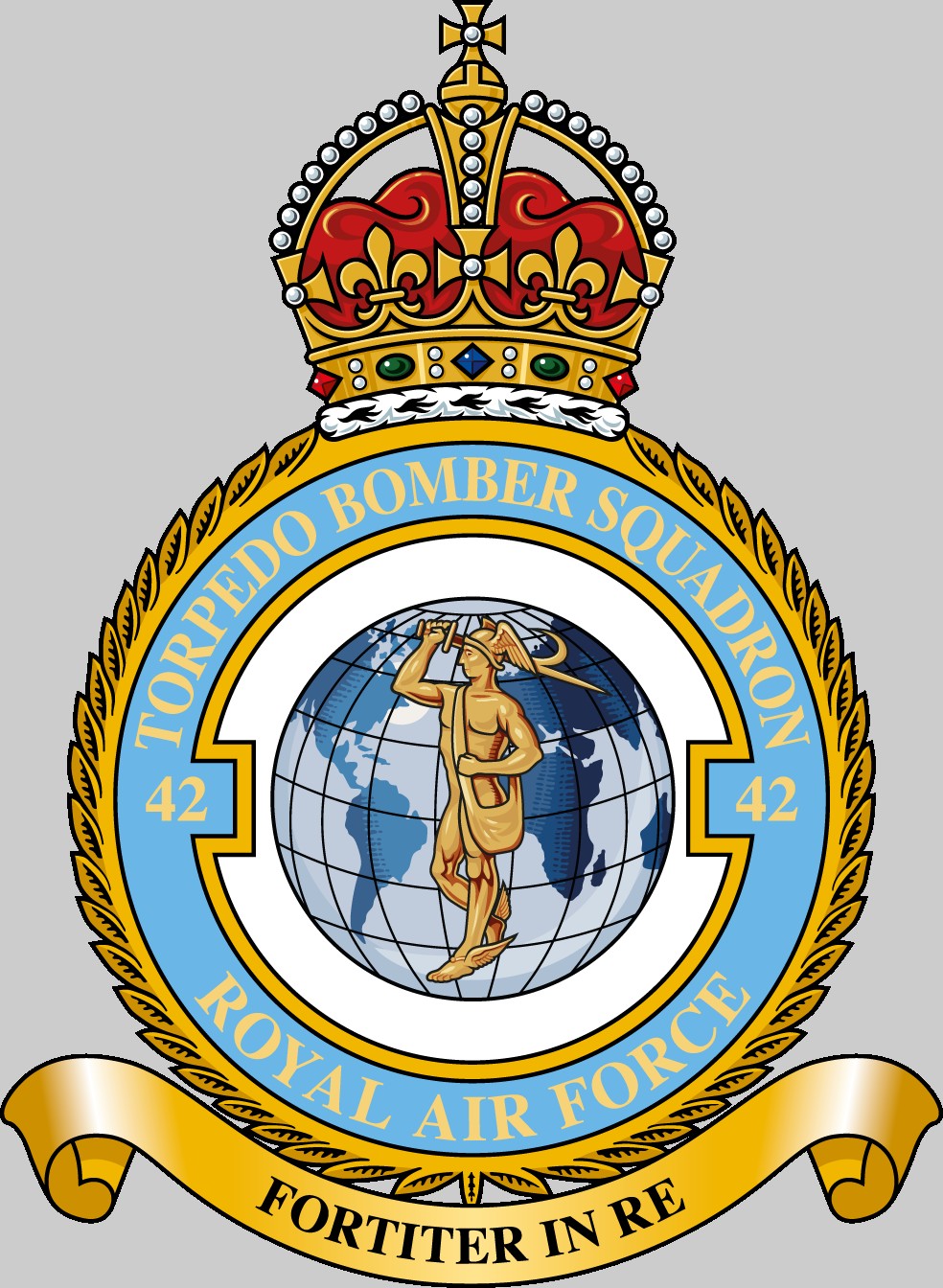 |
||||
|
HOME
|
US Navy -
ships
|
US Navy - air
units
|
USMC - air
units
|
International
Navies
|
Weapon Systems
|
Special Reports |
||||
|
United Kingdom / Royal Air Force Boeing Poseidon MRA1 (P-8A) Maritime Patrol and Reconnaissance Aircraft |
||||
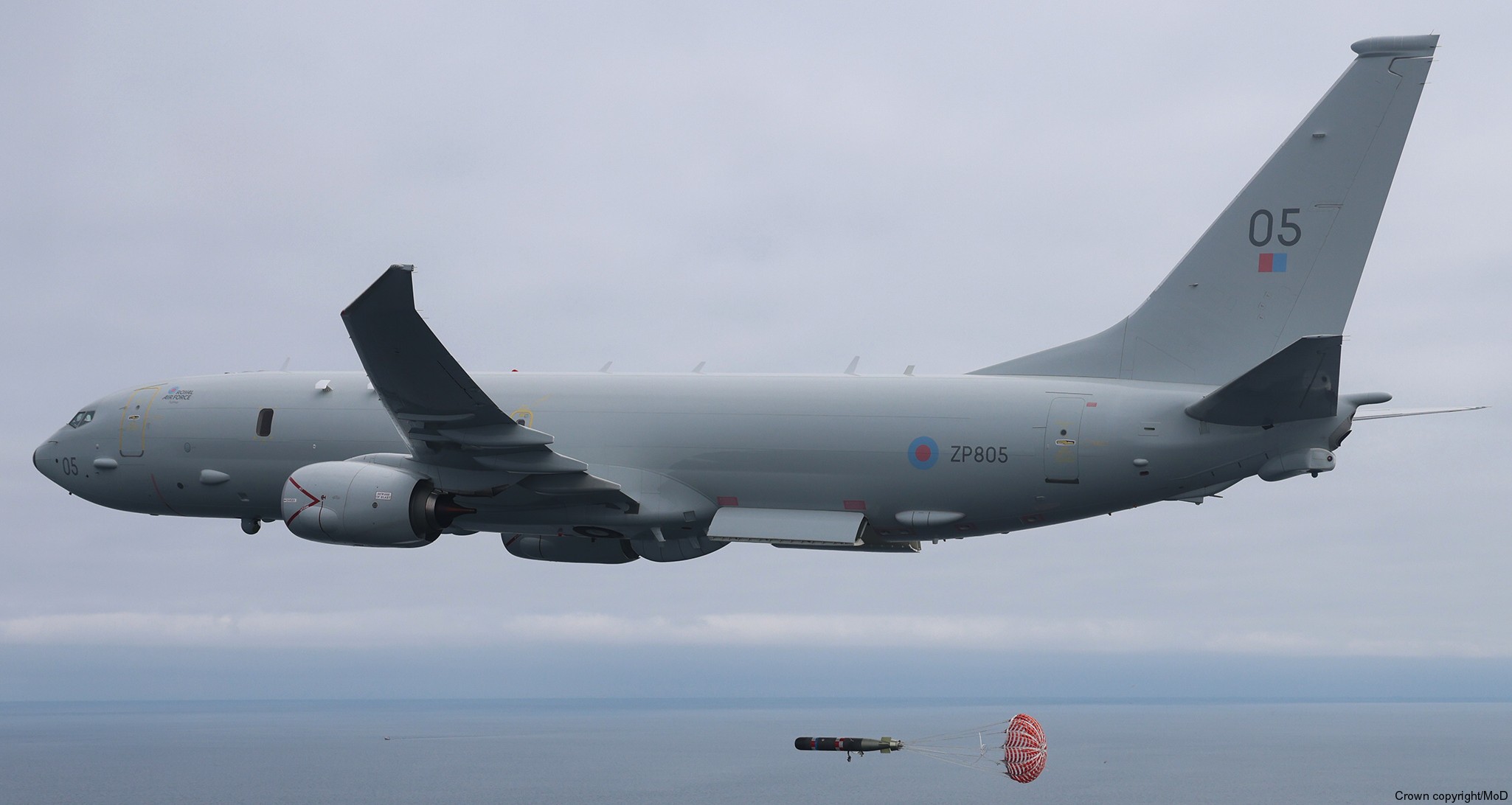 |
||||
| 10/24 | ||||
| Units (9 +?): | ||||
|
||||
|
The Boeing P-8 Poseidon is an American
maritime patrol and reconnaissance aircraft developed and produced
by Boeing Defense, Space & Security, and derived from the civilian
Boeing 737-800. It was developed for the United States Navy (USN). The P-8 operates in the anti-submarine warfare (ASW), anti-surface warfare (ASUW), and intelligence, surveillance and reconnaissance (ISR) roles. It is armed with torpedoes, Harpoon anti-ship missiles, and other weapons and can drop and monitor sonobuoys. The P-8 is operated by the United States Navy, the Indian Navy, the Royal Australian Air Force, and the United Kingdom's Royal Air Force. It has also been ordered by the Royal Norwegian Air Force, the Royal New Zealand Air Force, the Republic of Korea Navy, and the German Navy. The P-8 is a militarized version of the 737-800ERX, a 737-800 with 737-900-based wings. The fuselage is similar to, but longer than, the 737-700-based C-40 Clipper transport aircraft in service with the USN. The P-8 has a strengthened fuselage for low-altitude operations and raked wingtips similar to those fitted to the Boeing 767-400ER, instead of the blended winglets available on 737NG variants. In order to power additional onboard electronics, the P-8 has a 180 kVA electric generator on each engine, replacing the 90 kVA generator of civilian 737s; this required the redesigning of the nacelles and their wing mountings. The P-8 has a smoother flight experience, subjecting crews to less turbulence and fumes than the preceding P-3, allowing them to concentrate better on missions. The P-8 features the Raytheon APY-10 multi-mission surface search radar. Unlike the preceding P-3, the P-8 lacks a magnetic anomaly detector (MAD) due to its higher operational altitude; its acoustic sensor system is reportedly more effective at acoustic tracking and thus lacking a MAD will not impede its detection capabilities; India's P-8I is equipped with a MAD per the contract request. Various sensor data are combined via data fusion software to track targets. Following the cancellation of Lockheed Martin's Aerial Common Sensor project, Boeing proposed a signals intelligence variant of the P-8 for the USN's requirement. During the P-8A Increment 2 upgrade in 2016, the APS-149 Littoral Surveillance Radar System (LSRS) will be replaced by the Advanced Airborne Sensor radar. The five operator stations (two naval flight officers plus three enlisted Aviation Warfare Operators/naval aircrewman) are mounted in a sideways row, along the port side of the cabin. Other than one large window on each side of the forward cabin for two observers, none of the other crew stations have windows. A short bomb bay for torpedoes and other stores opens behind the wing. The P-8 is to be equipped with the High Altitude Anti-Submarine Warfare Weapon Capability (HAAWC) Air Launch Accessory (ALA), turning a Mark 54 torpedo into a glide bomb for deploying from up to 30,000 ft (9,100 m). United Kingdom (operated by Royal Air Force): In August 2012, it was reported that Boeing saw the United Kingdom as a market for the P-8, following the cancellation of the Nimrod MRA4 in 2010. On 23 November 2015, the UK announced its intention to order nine P-8s in the Strategic Defence and Security Review 2015, which would be based at RAF Lossiemouth, Scotland to protect the UK's nuclear deterrent and aircraft carriers, as well as perform search-and-rescue and overland reconnaissance missions. On 25 March 2016, the U.S. State Department approved a proposed Foreign Military Sale to the UK for up to nine P-8s and associated support. During an April 2016 tour of US anti-submarine capabilities, the UK defense procurement minister stated that the Royal Air Force would initially operate the P-8 with U.S. weapons, with the option to transition to British weapons later. It was not initially clear whether the UK would have access to future ground-surveillance capabilities developed for the P-8. On 11 July 2016, Boeing announced the signing of a $3.87 billion (£3 billion) contract for nine P-8s and support infrastructure, spread across three production lots over a ten-year period, with deliveries commencing in 2019. The RAF allocated the aircraft the service name Poseidon MRA Mk1. They are operated by No. 120 Squadron and No. 201 Squadron. The first Poseidon MRA Mk1 (ZP801) made its initial flight on 13 July 2019. The UK took delivery of the first aircraft, named Pride of Moray, at Boeing's Seattle facility on 29 October. It arrived at Kinloss Barracks in February 2020 before relocating to RAF Lossiemouth in October 2020, along with ZP802 which was delivered on 13 March 2020. The RAF declared the P-8 had reached initial operating capability (IOC) on 1 April 2020. The final ordered aircraft arrived at RAF Lossiemouth in January 2022. General characteristics: Crew: Flight: two; Mission: seven Capacity: 19,800 lb (9,000 kg) Length: 129 ft 5 in (39.47 m) Wingspan: 123 ft 6 in (37.64 m) Height: 42 ft 1 in (12.83 m) Empty weight: 138,300 lb (62,730 kg) Max takeoff weight: 189,200 lb (85,820 kg) Powerplant: 2 x CFM56-7B27A turbofans, 27,000 lbf (120 kN) thrust each Maximum speed: 564 mph (907 km/h, 490 kn) Cruise speed: 509 mph (815 km/h, 440 kn) Combat range: 1,381 mi (2,222 km, 1,200 nmi) ; 4 hours on station Ferry range: 5,200 mi (8,300 km, 4,500 nmi) Service ceiling: 41,000 ft (12,500 m) Armament: 11 hardpoints (internal bay with 5 hardpoints / 6 external hardpoints) for a variety of weapons: AGM-84 Harpoon Stingray torpedo mines and/or depth charges up to 129 sonobuoys Avionics: Raytheon APY-10 multi-mission surface search radar AN/ALQ-240 Electronic Support Measures Suite AN/APS-154 Advanced Airborne Sensor source: wikipedia+ |
||||
| images | ||||
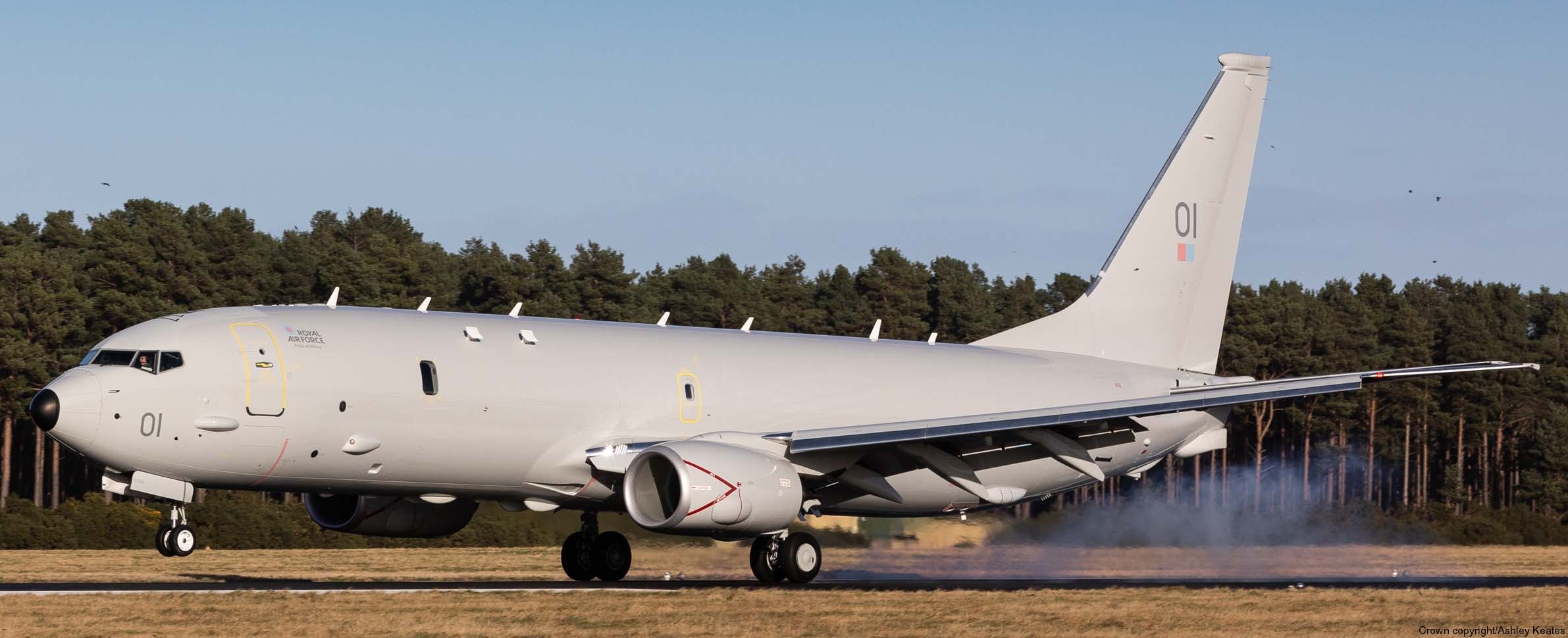 ZP801 - Pride Of Moray 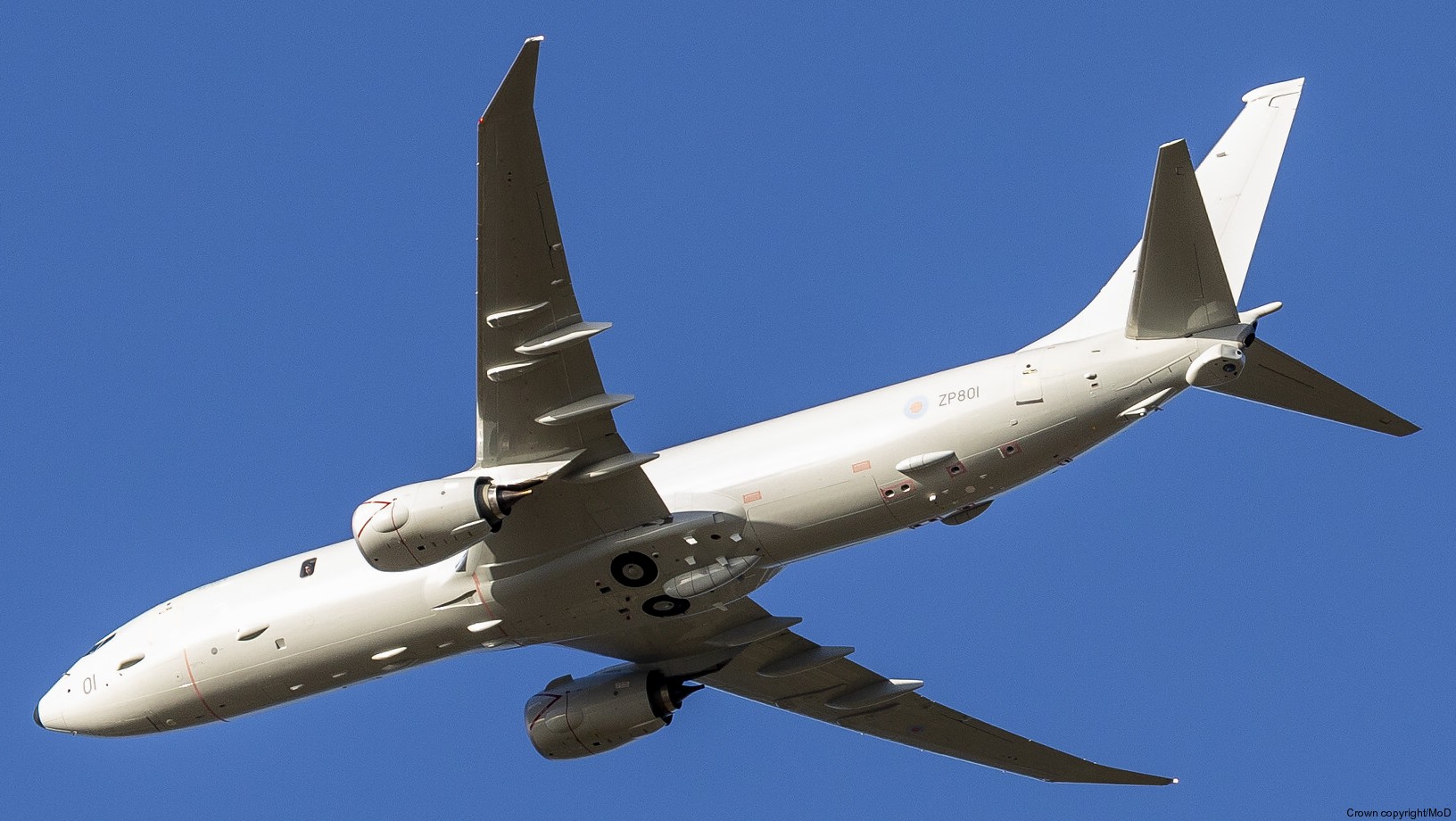 ZP801 - Pride Of Moray 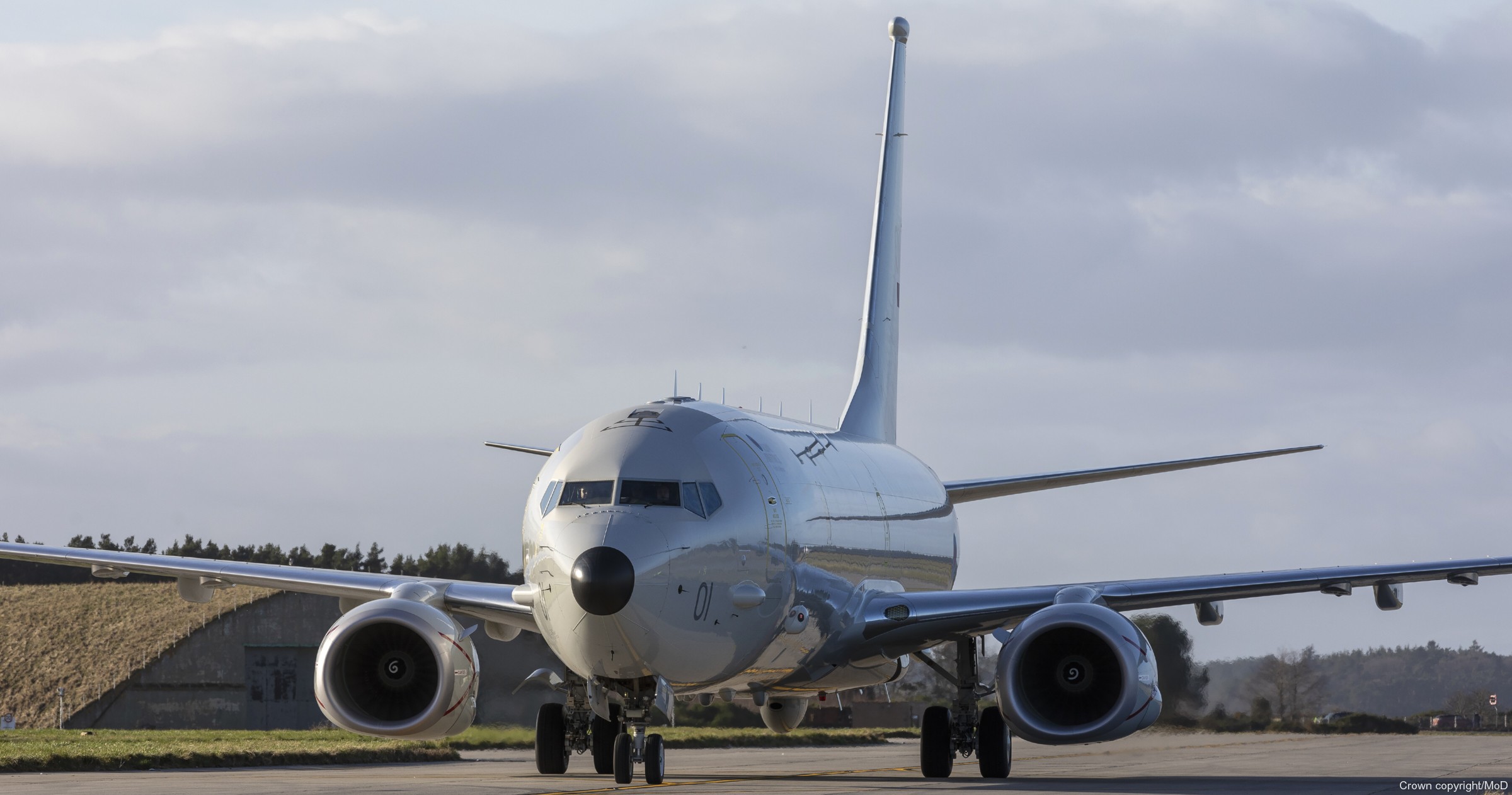 ZP801 - Pride Of Moray 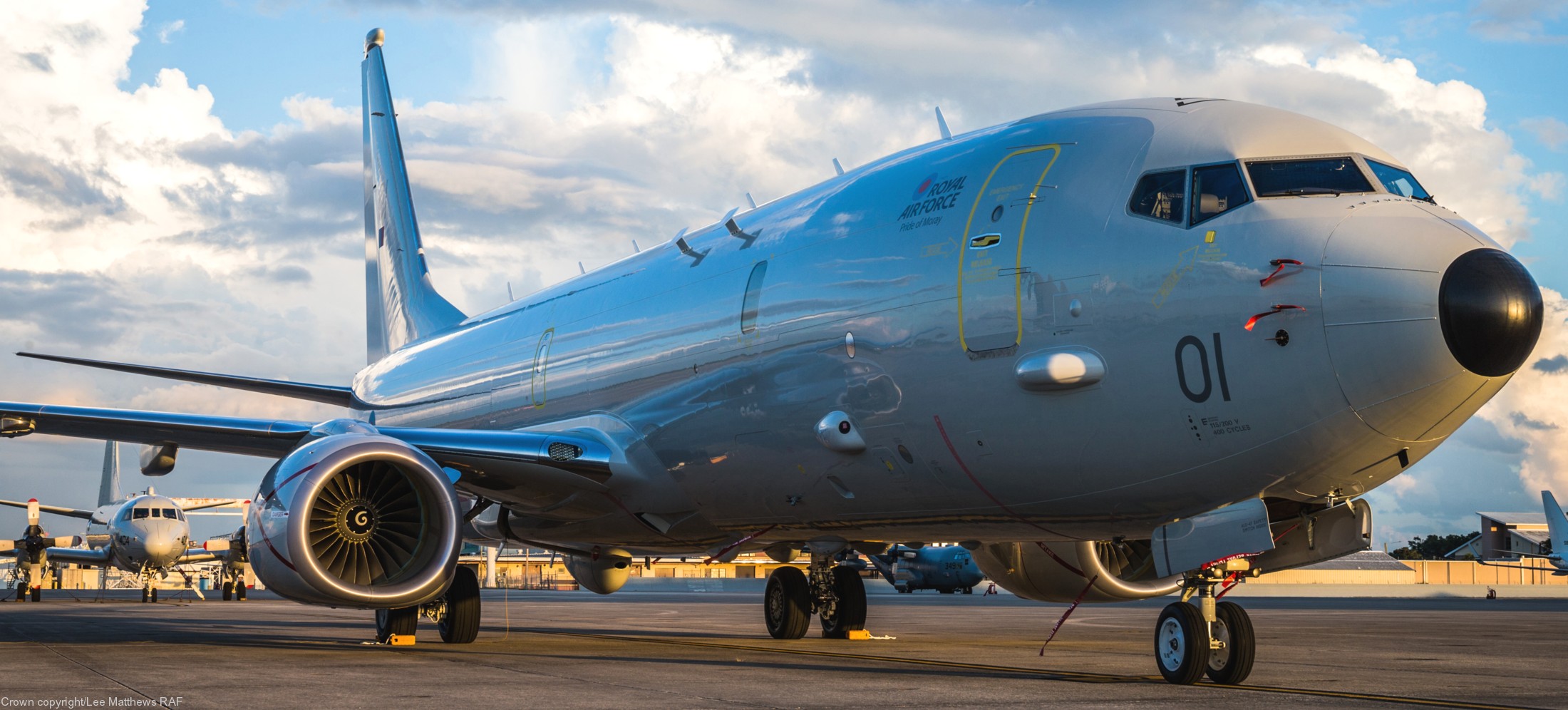 ZP801 - Pride Of Moray 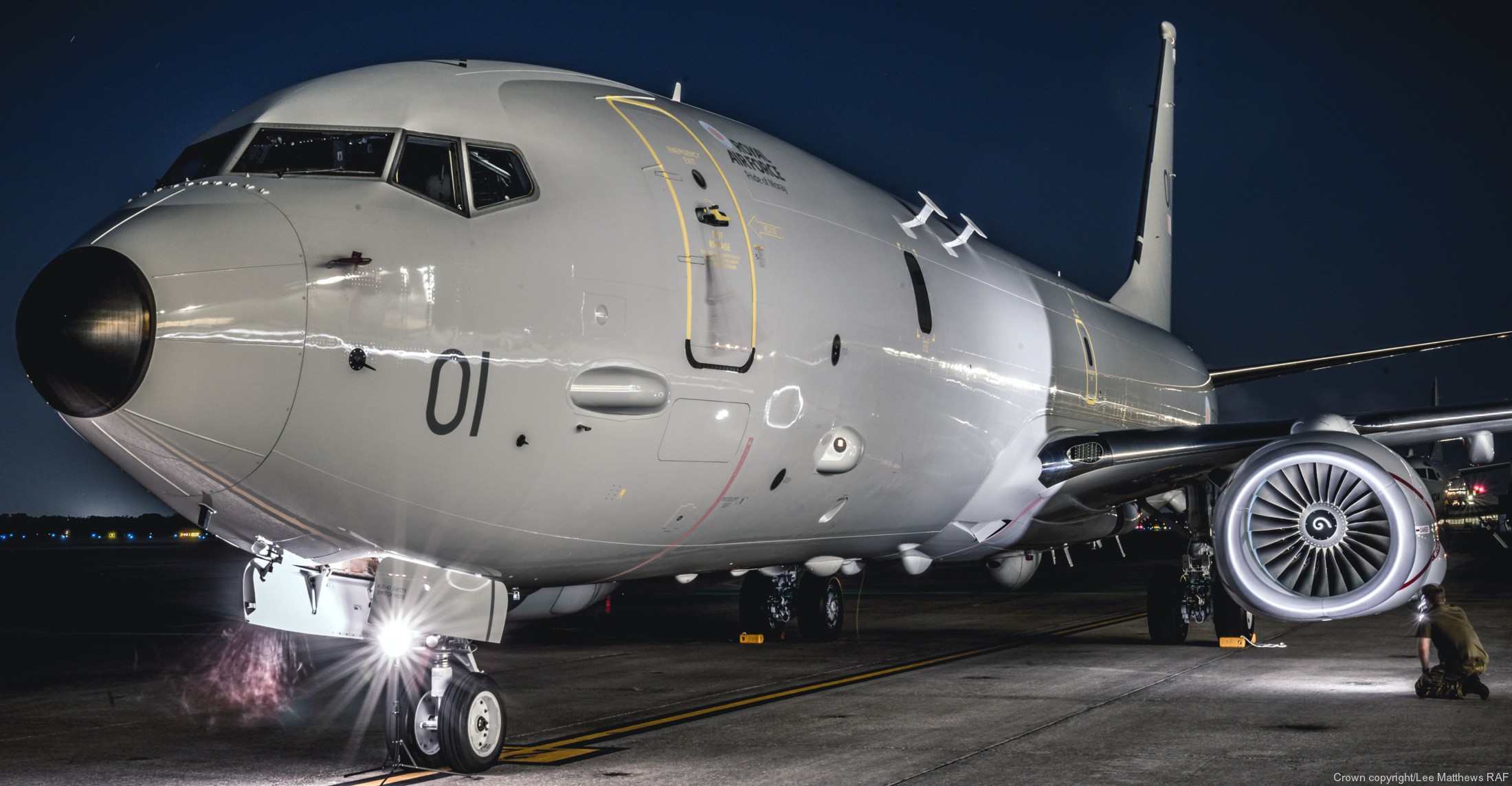 ZP801 - Pride Of Moray 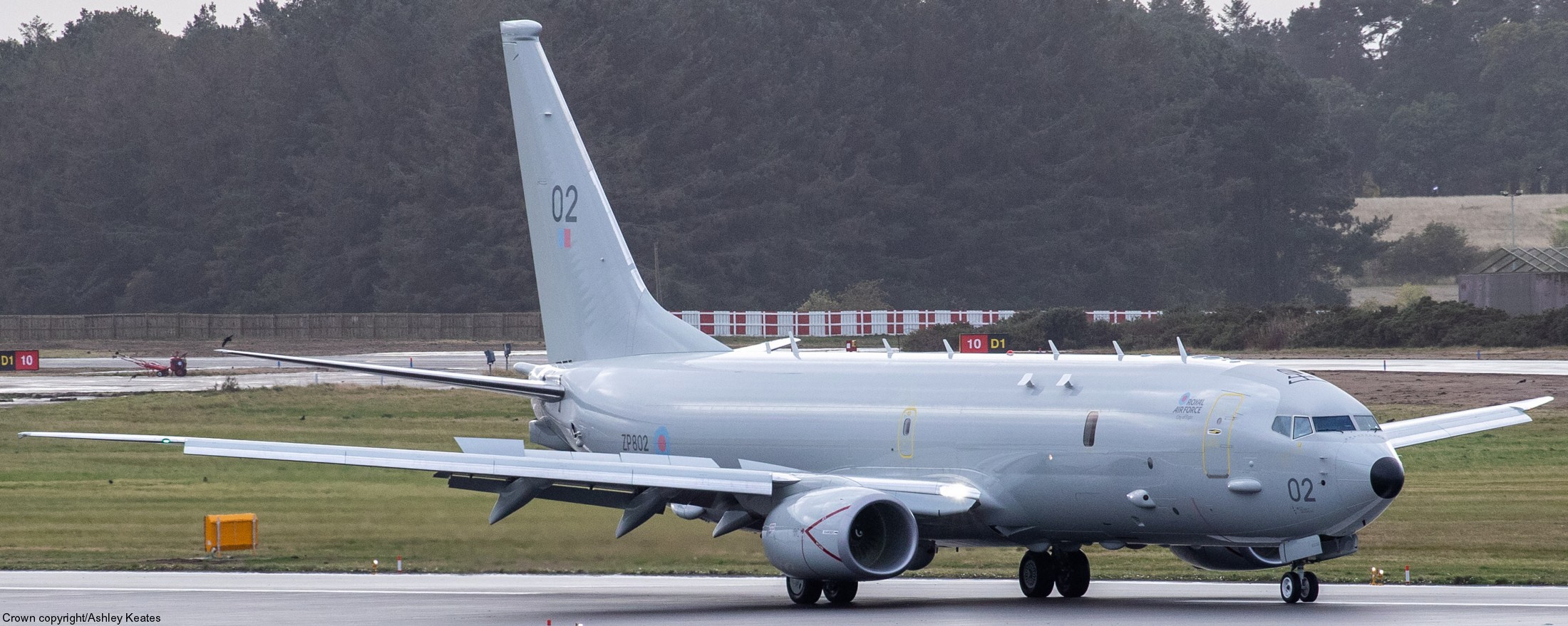 ZP802 - City of Elgin 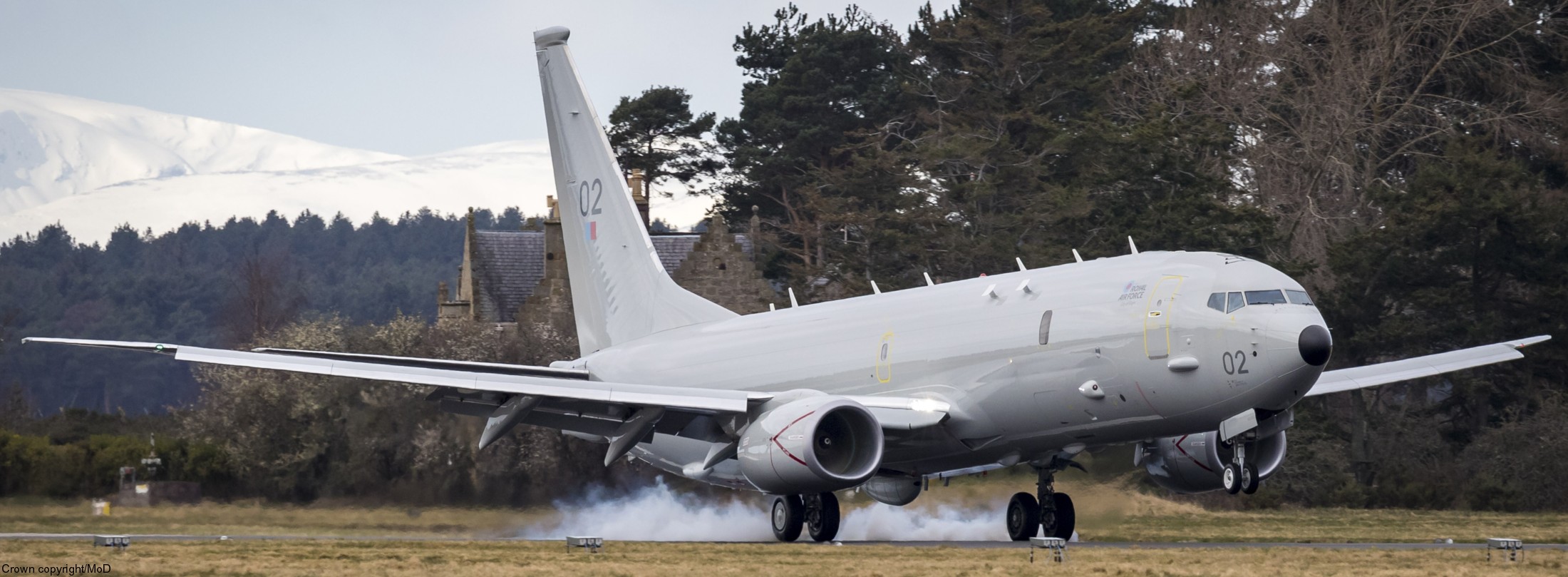 ZP802 - City of Elgin 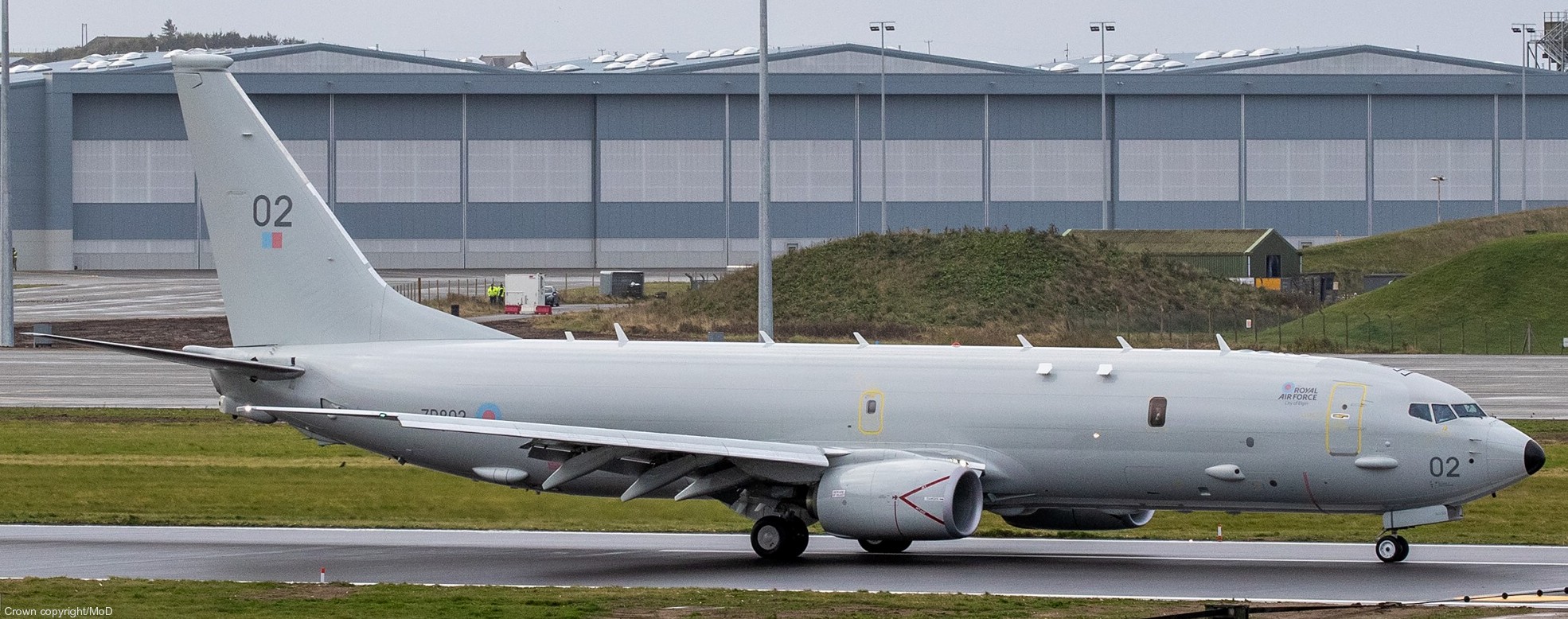 ZP802 - City of Elgin 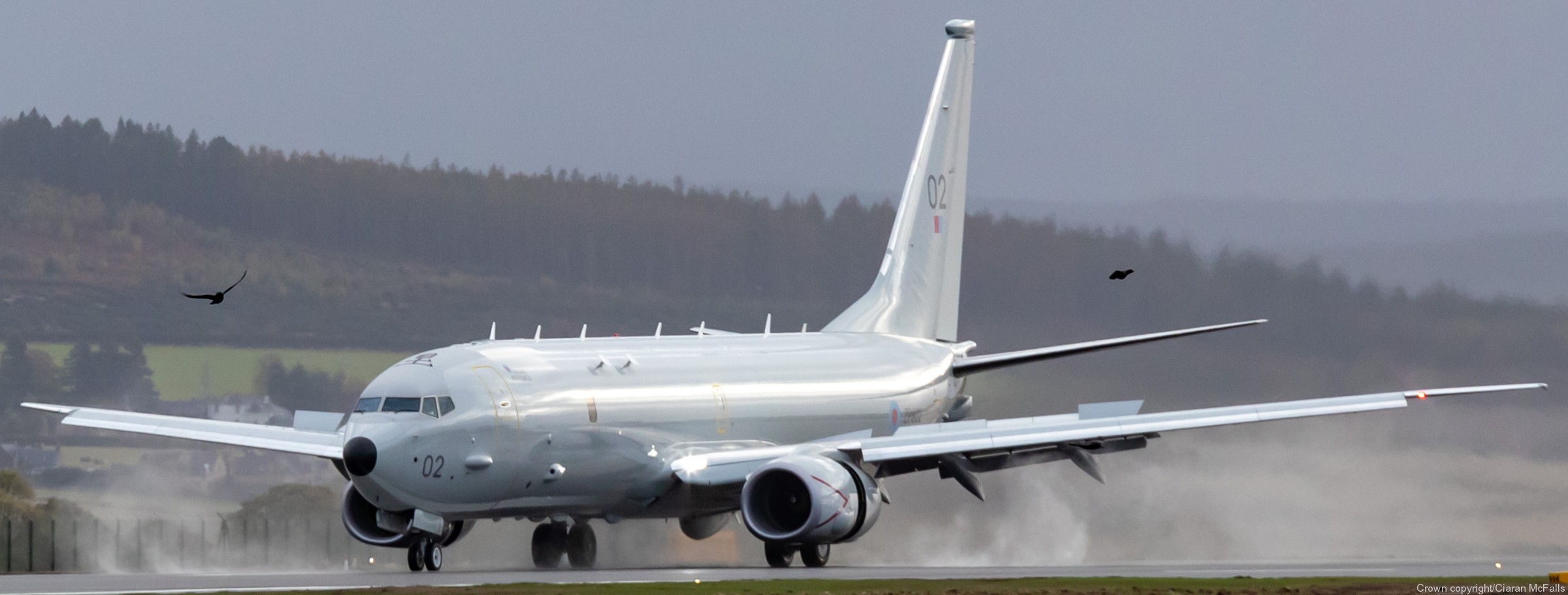 ZP802 - City of Elgin 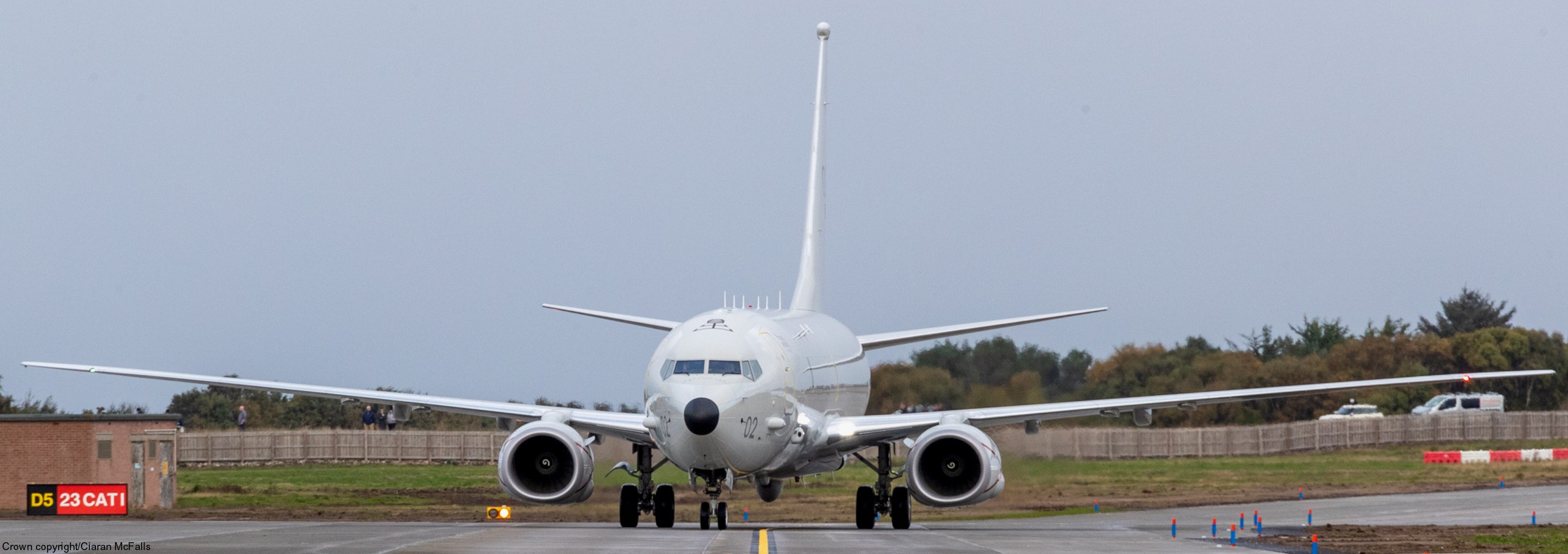 ZP802 - City of Elgin 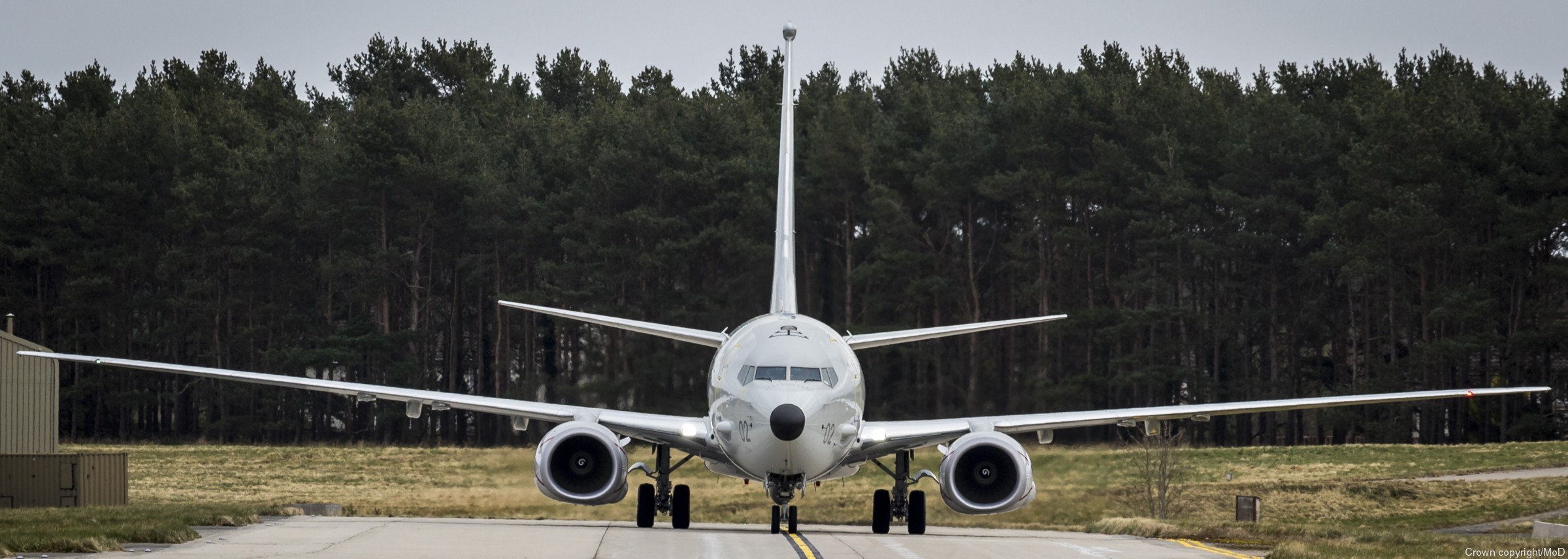 ZP802 - City of Elgin 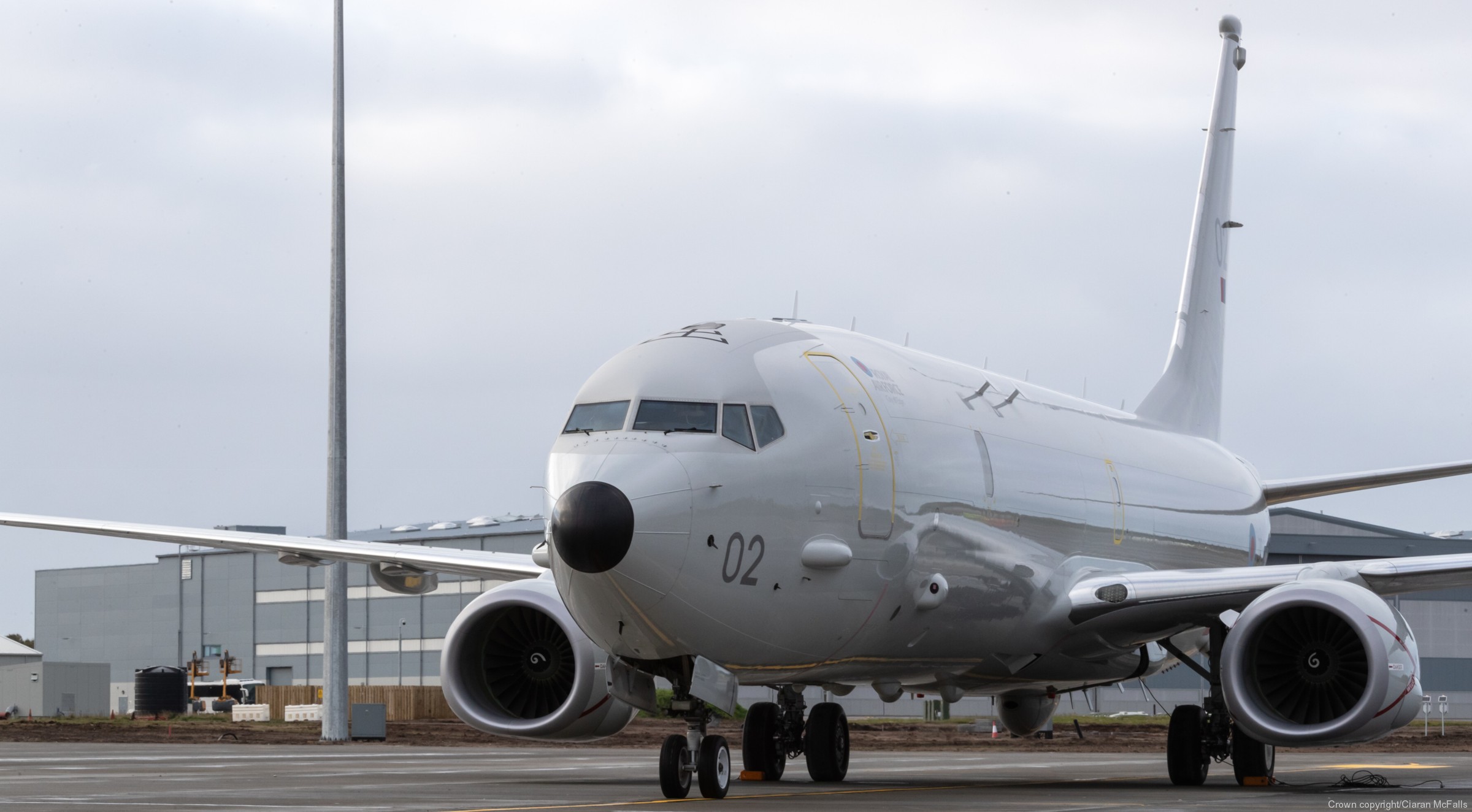 ZP802 - City of Elgin 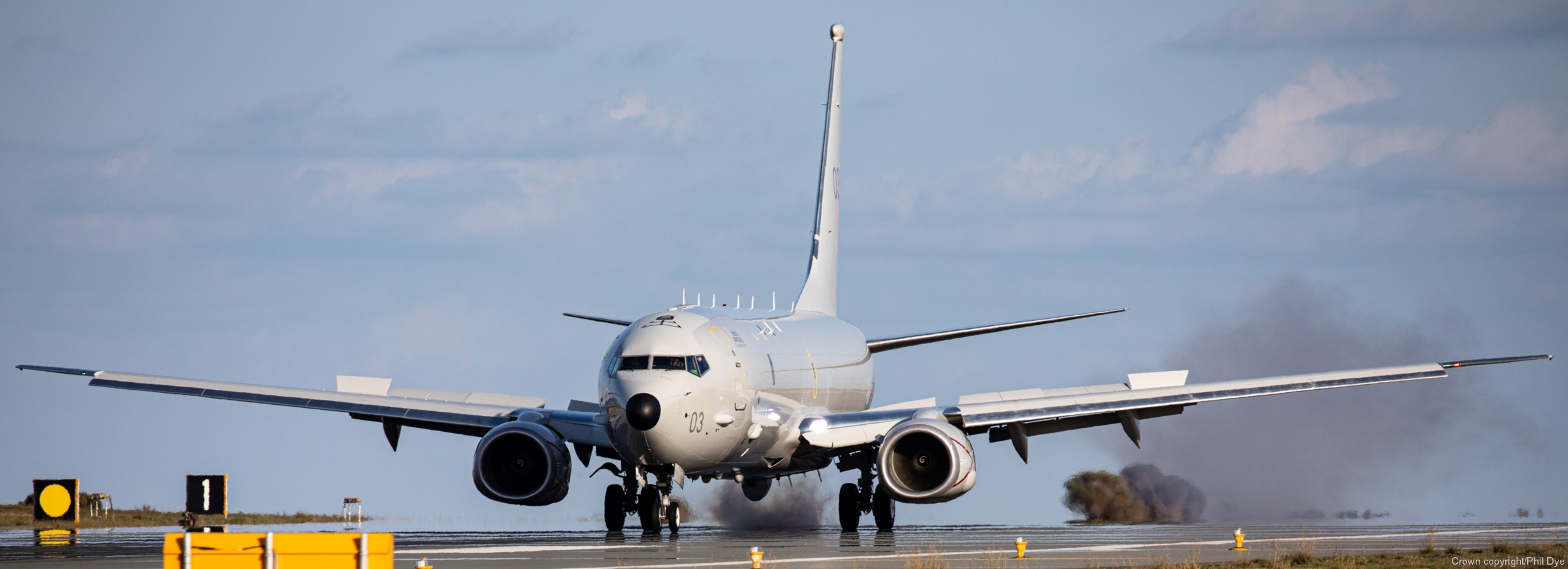 ZP803 - Terence Bulloch DSO DFC 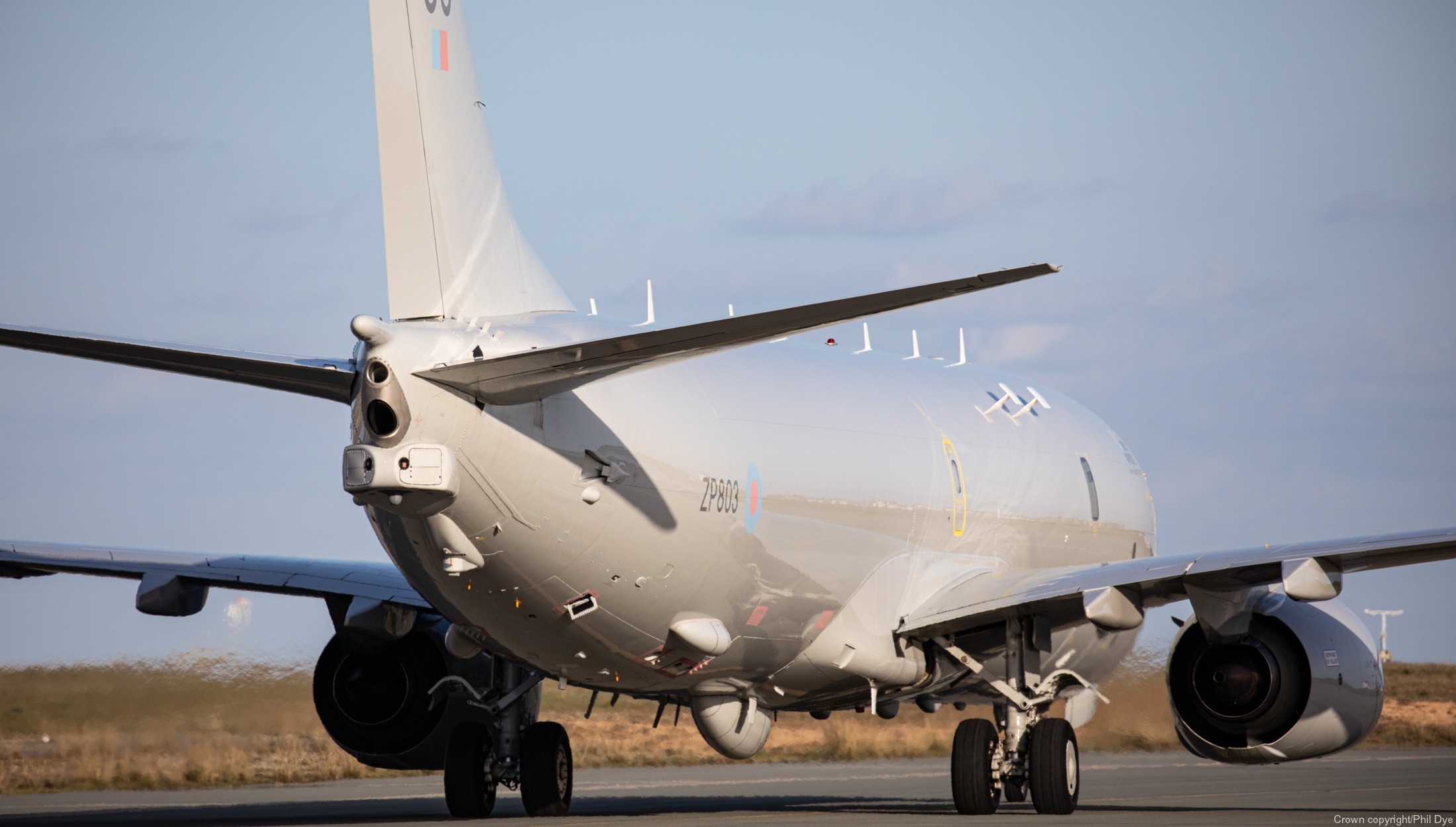 ZP803 - Terence Bulloch DSO DFC 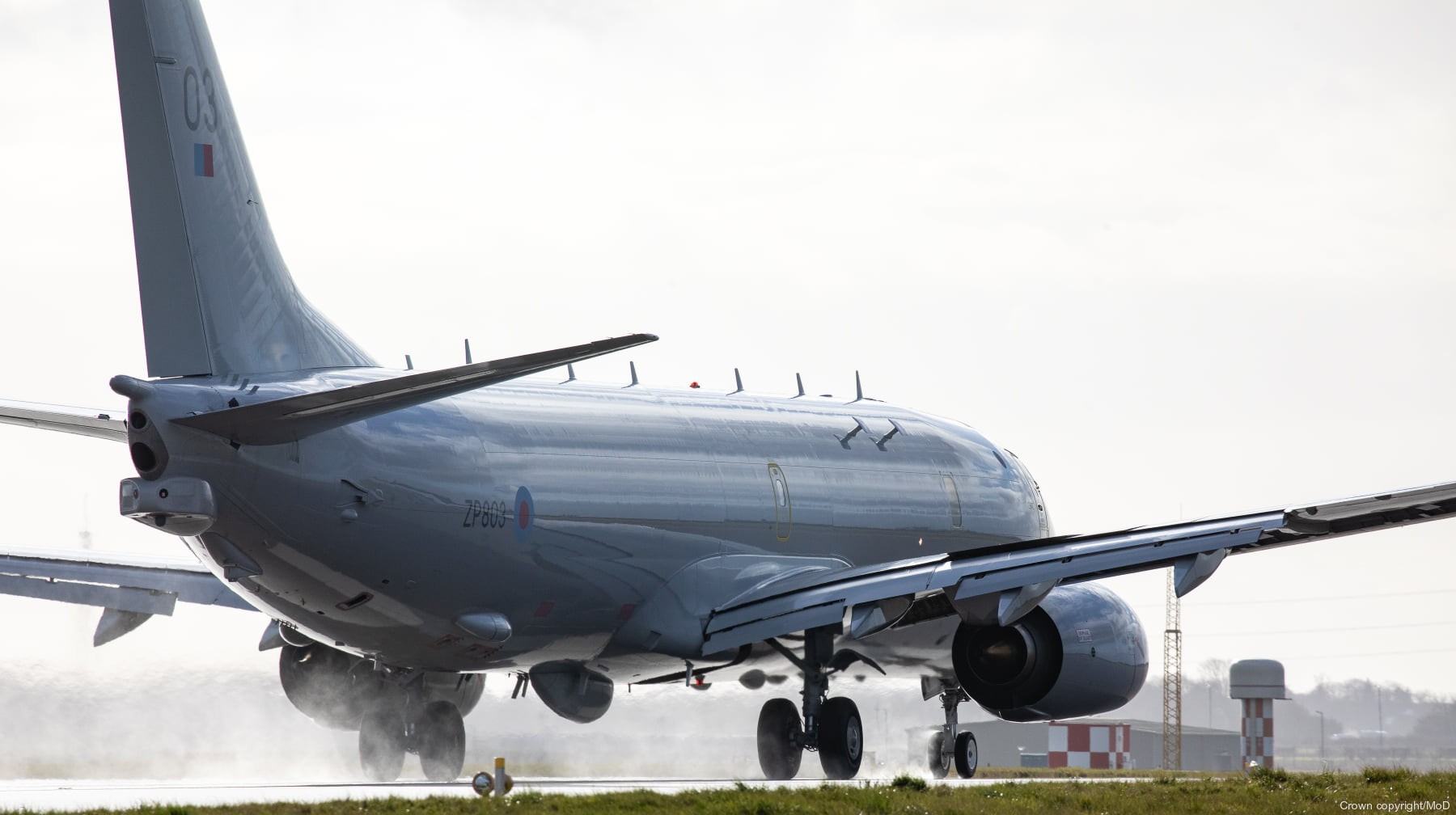 ZP803 - Terence Bulloch DSO DFC 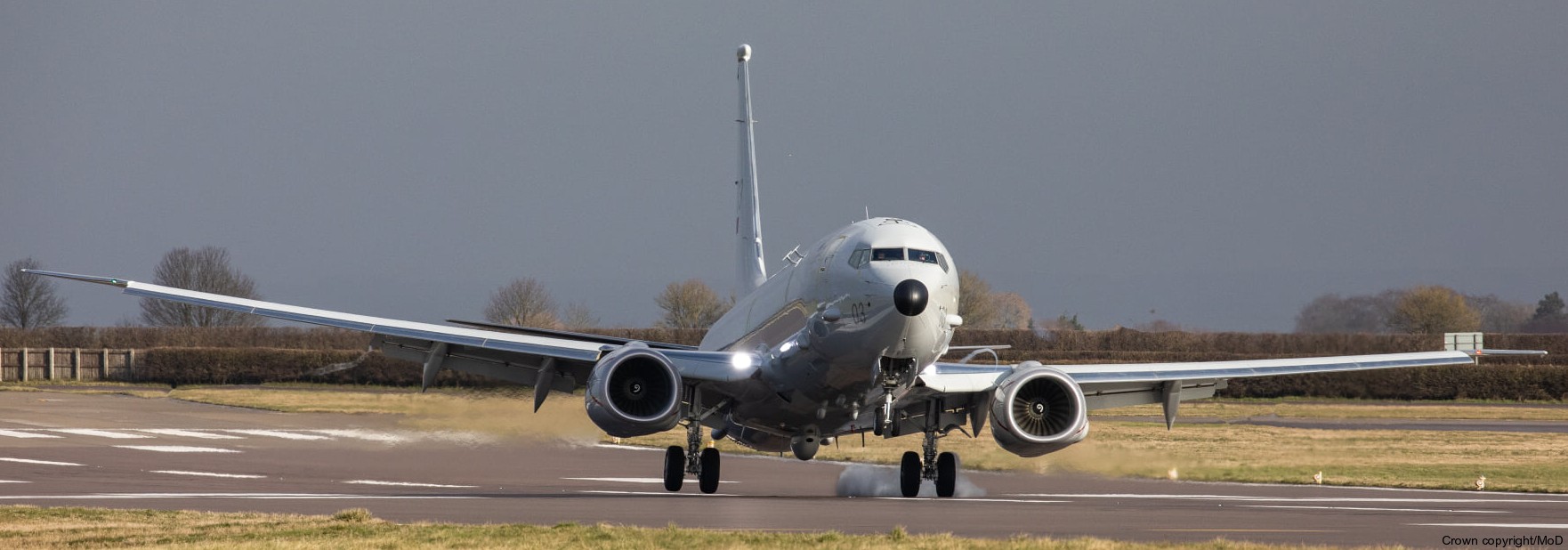 ZP803 - Terence Bulloch DSO DFC 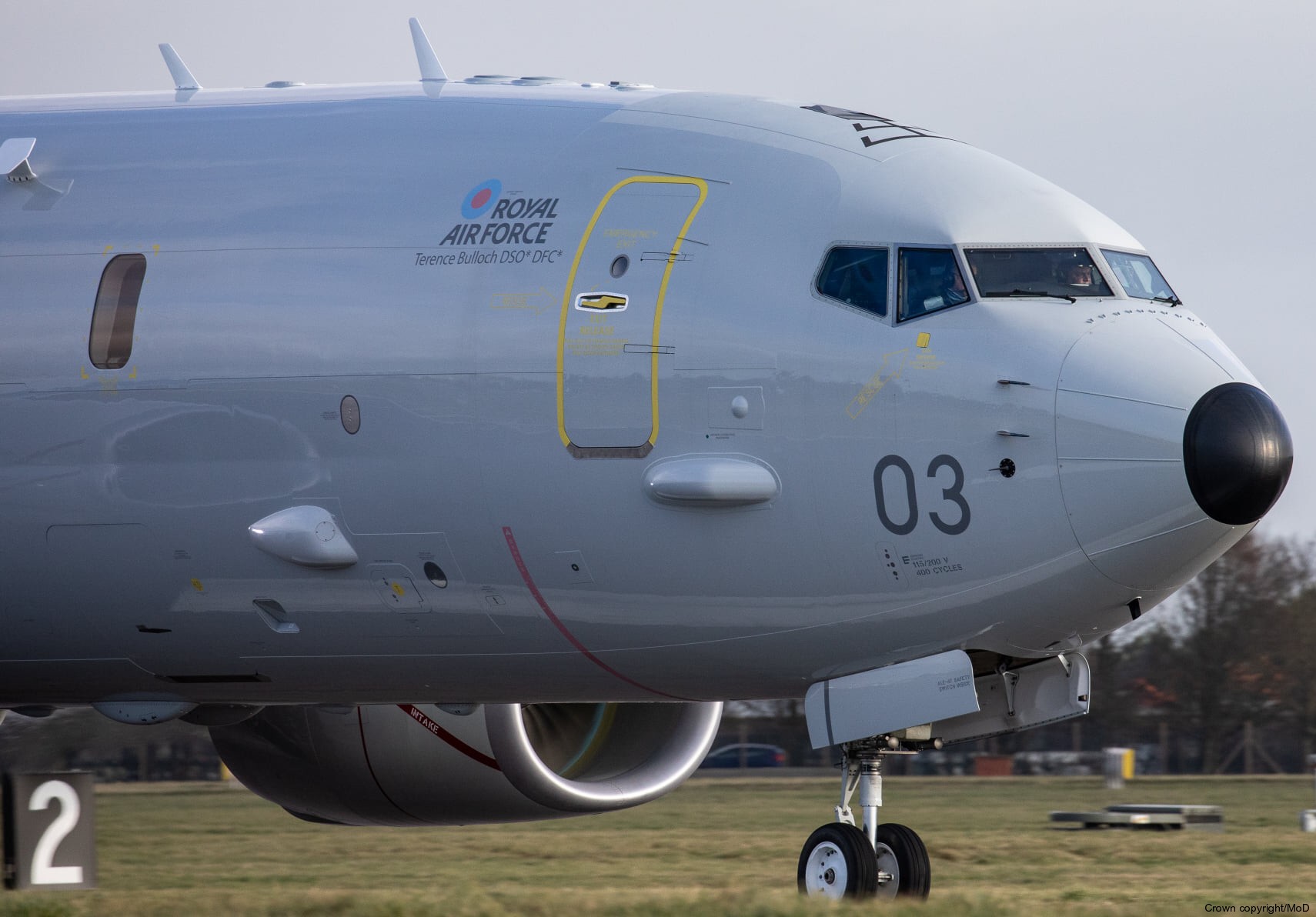 ZP803 - Terence Bulloch DSO DFC 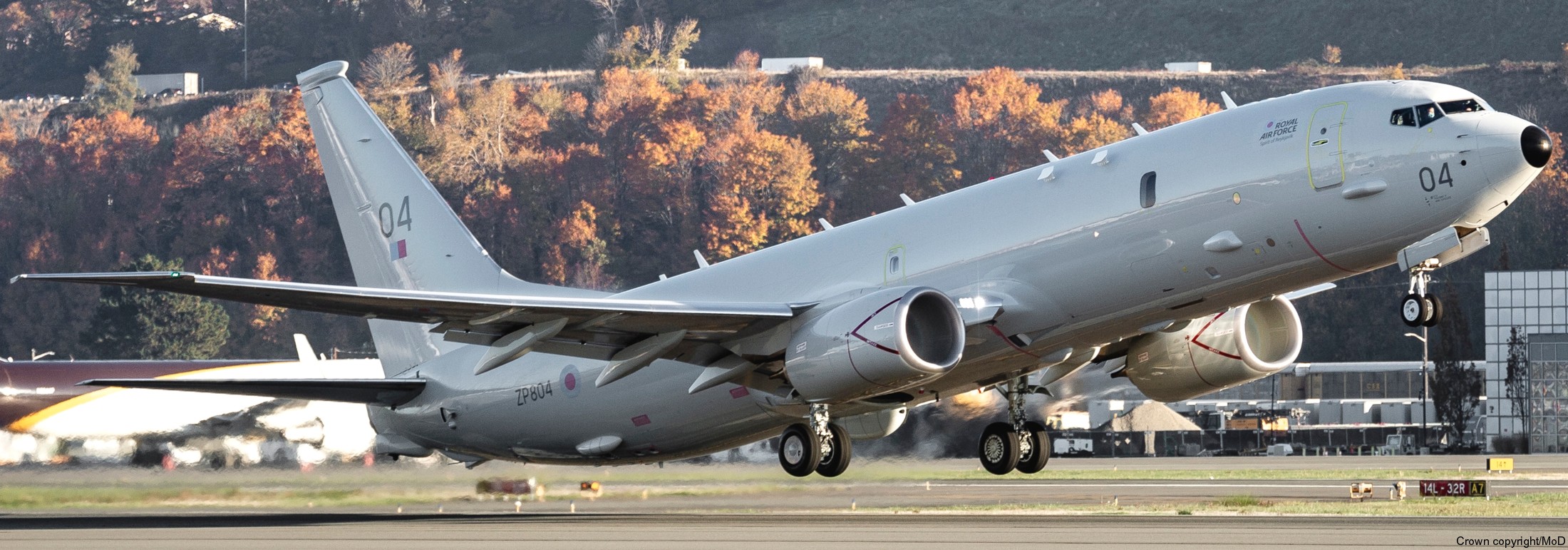 ZP804 - Spirit of Reykjavik  ZP804 - Spirit of Reykjavik 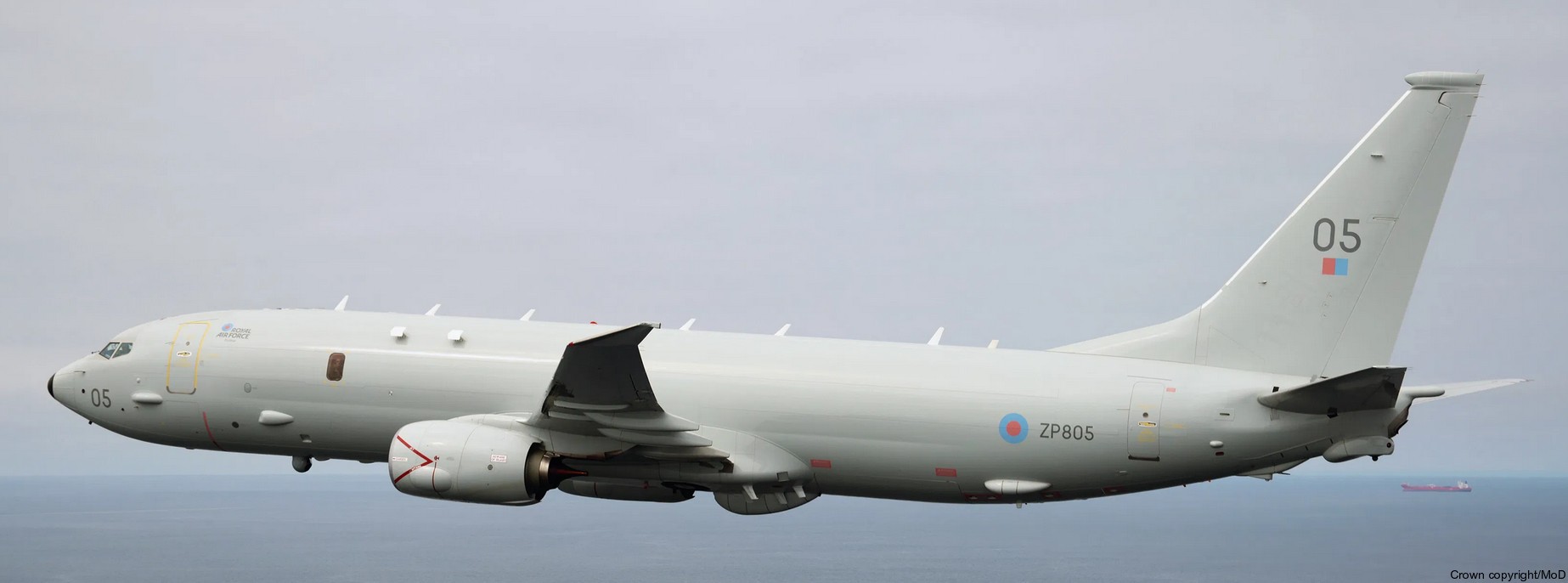 ZP805 - Fulmar 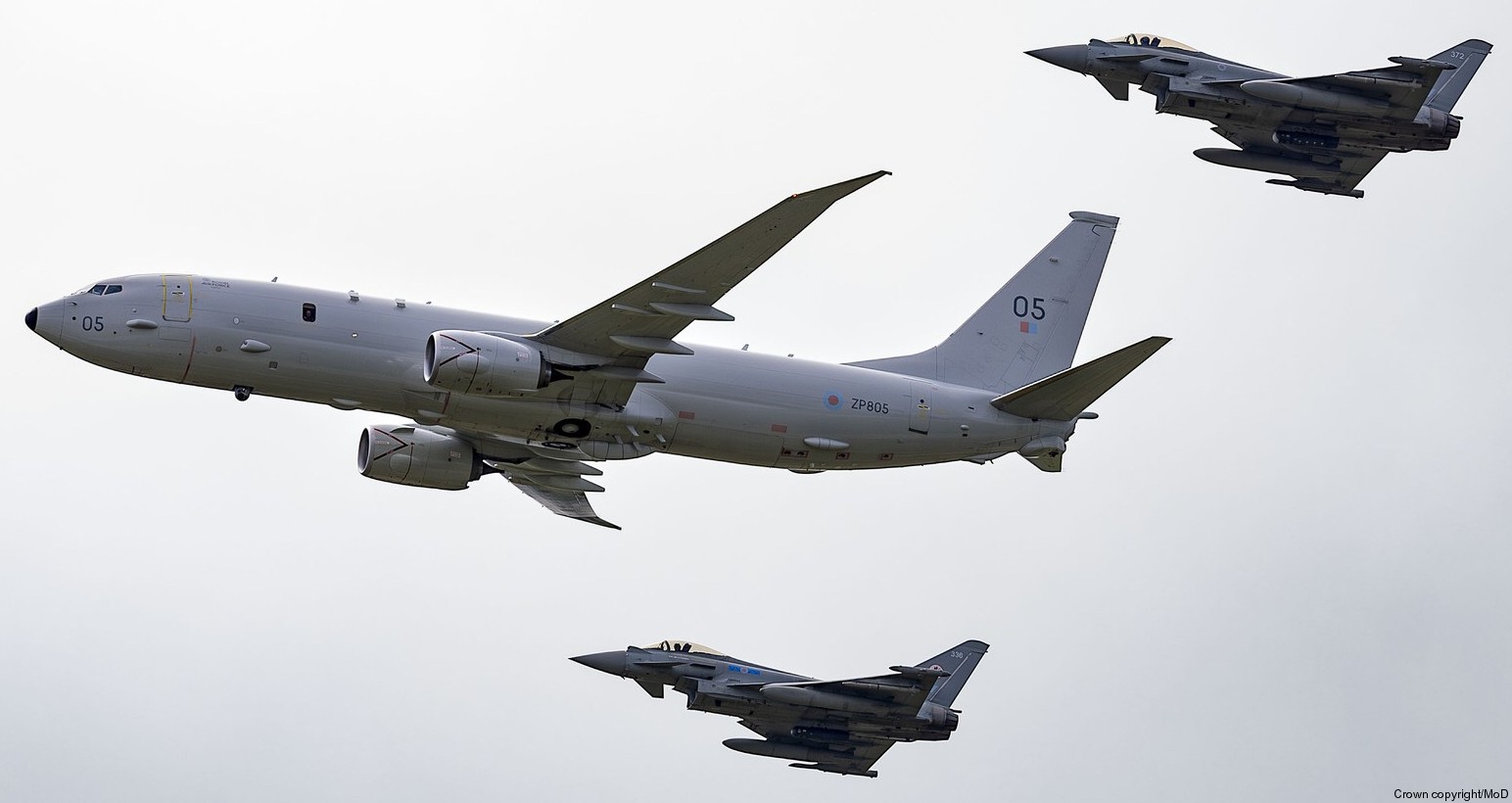 ZP805 - Fulmar 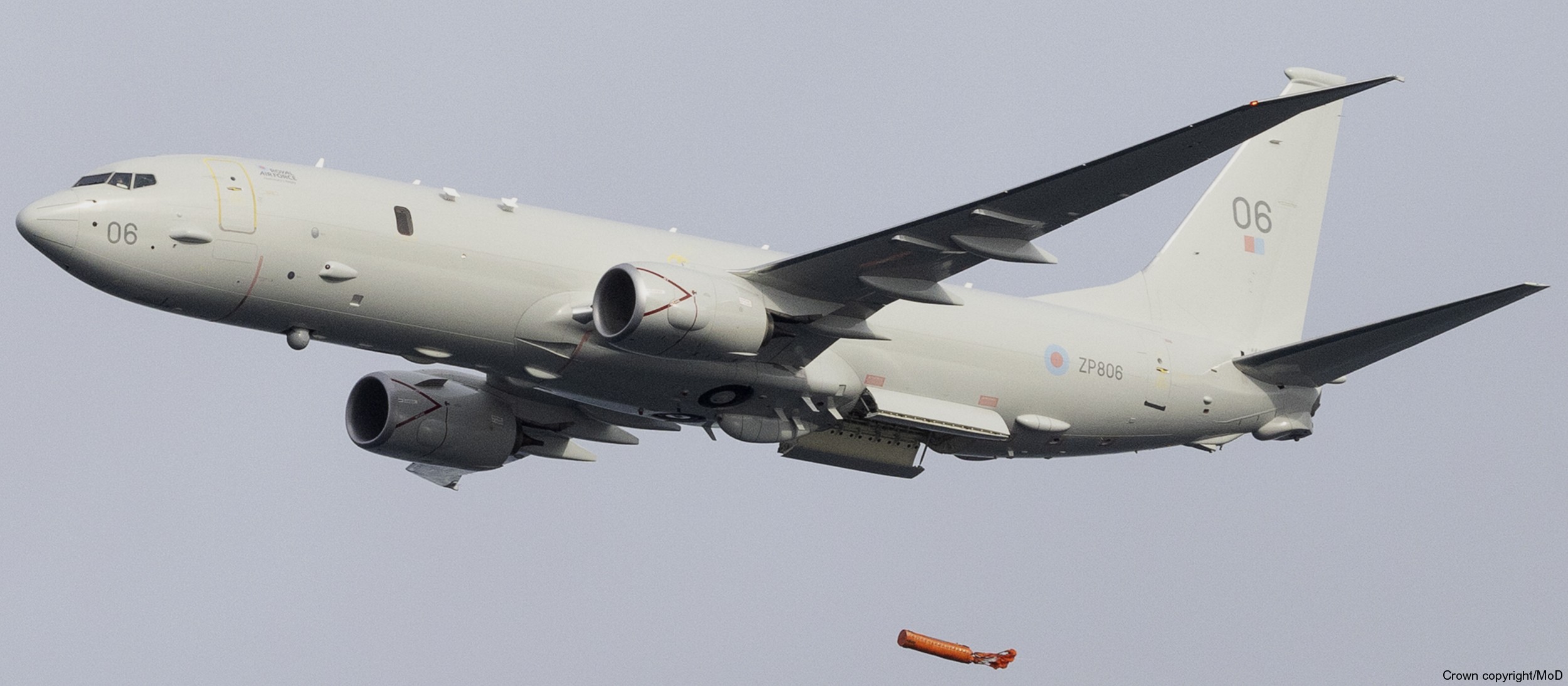 ZP806 - Guernsey's Reply 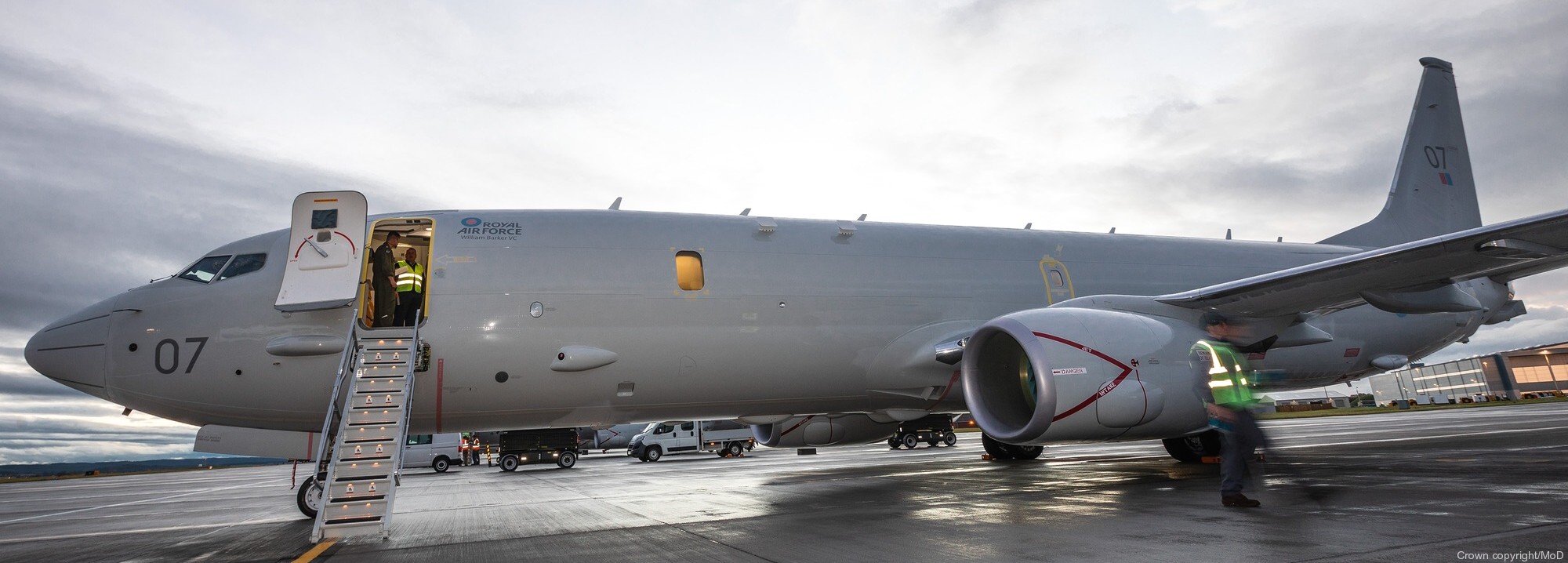 ZP807 - William Berker VC 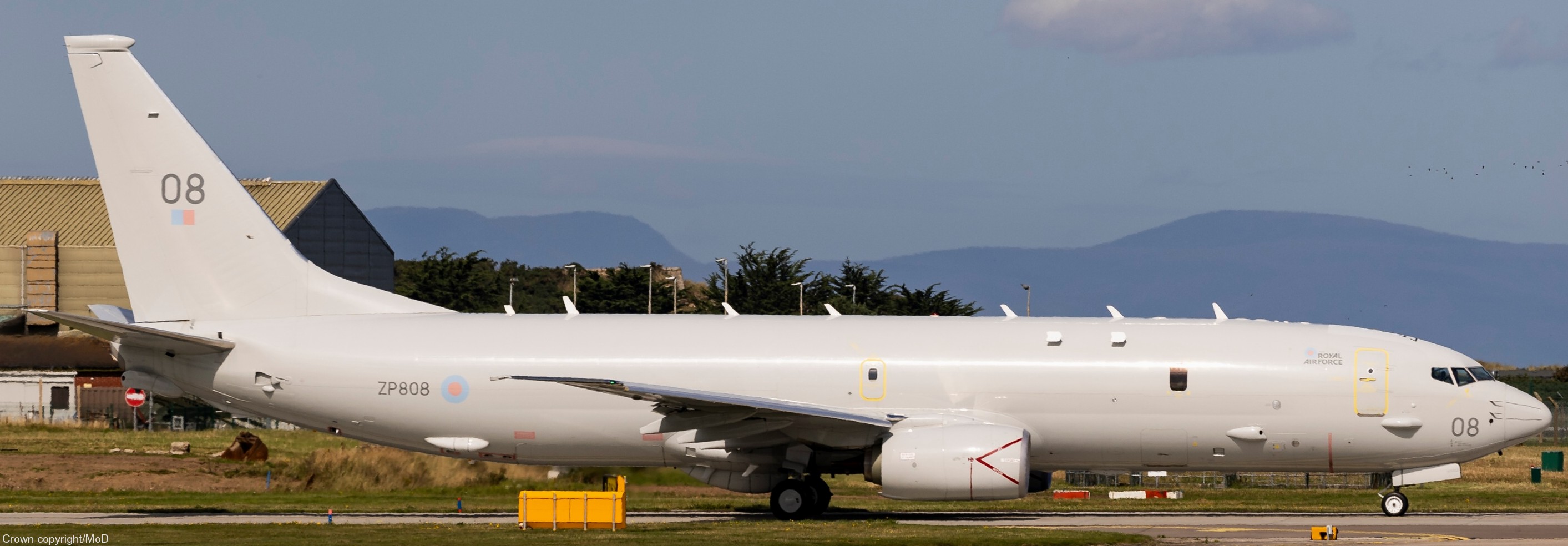 ZP808 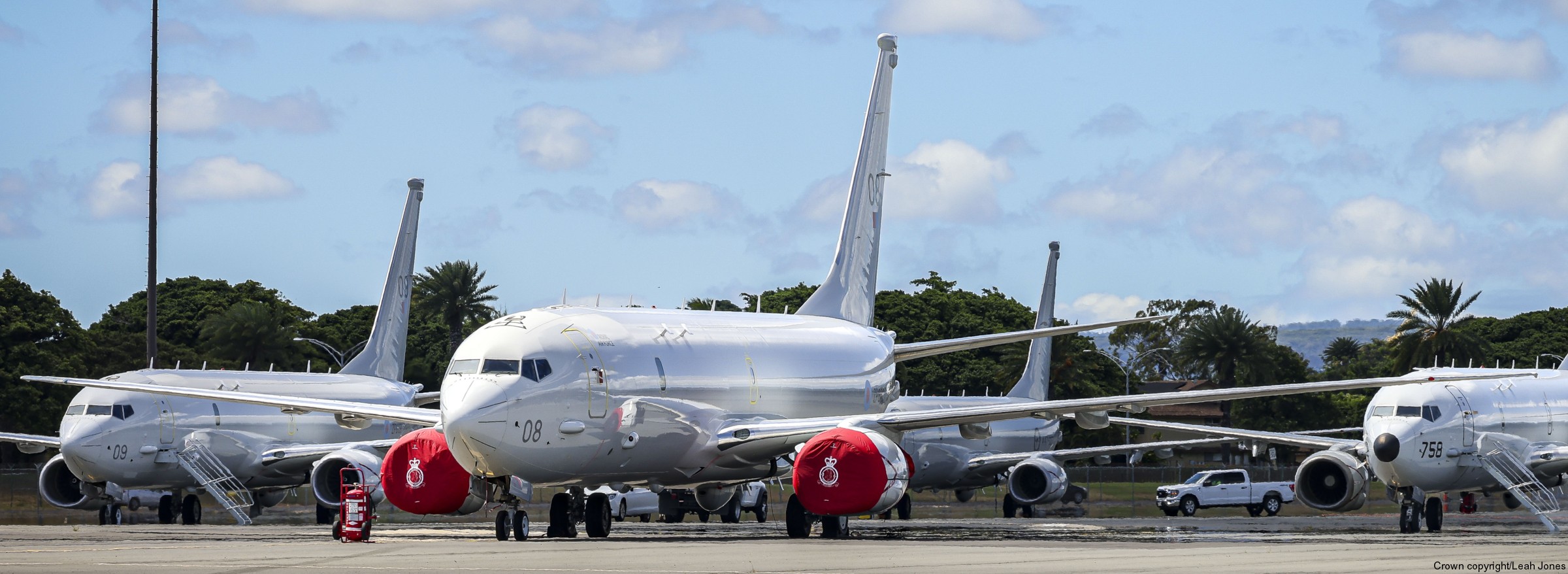 ZP808 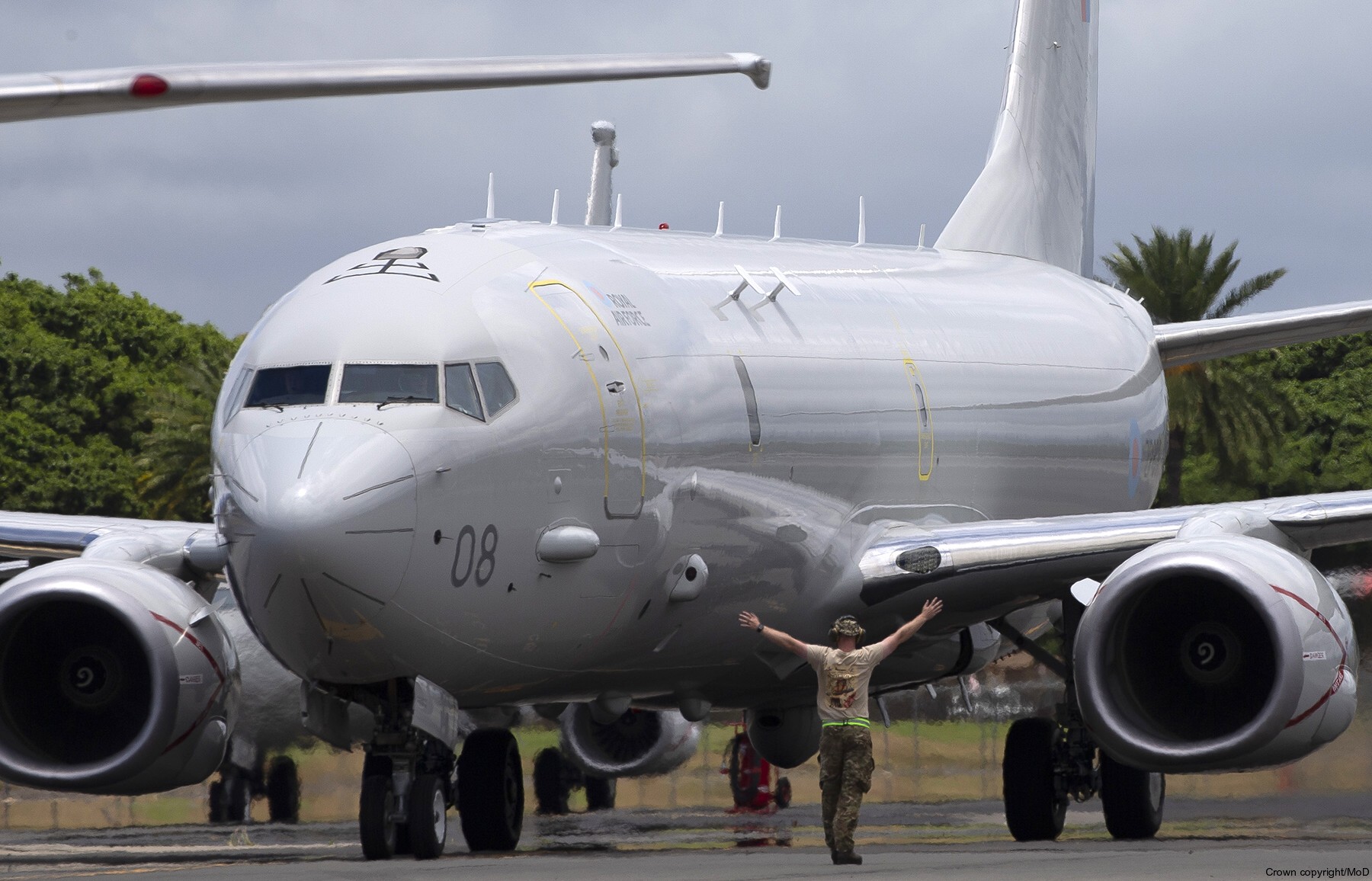 ZP808 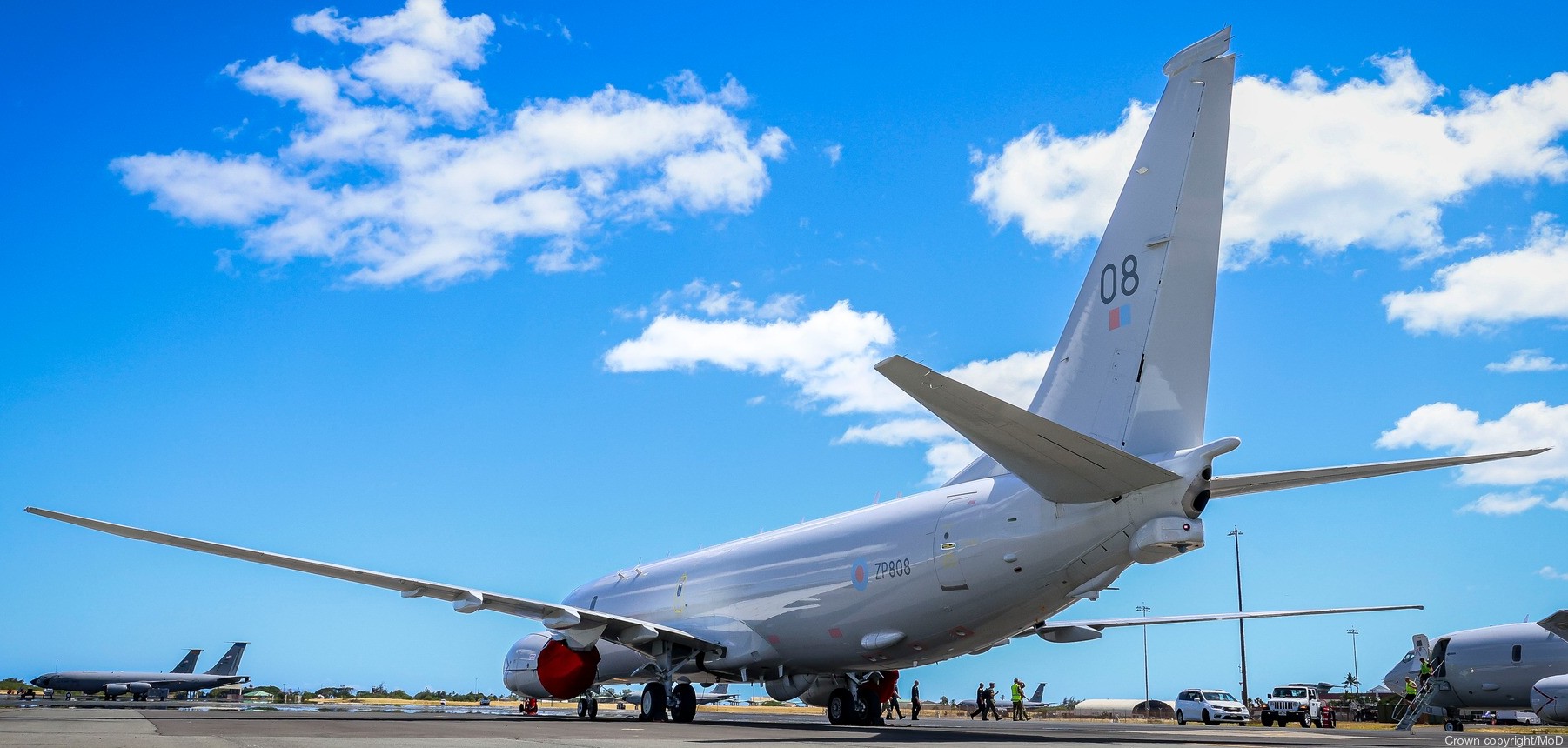 ZP808 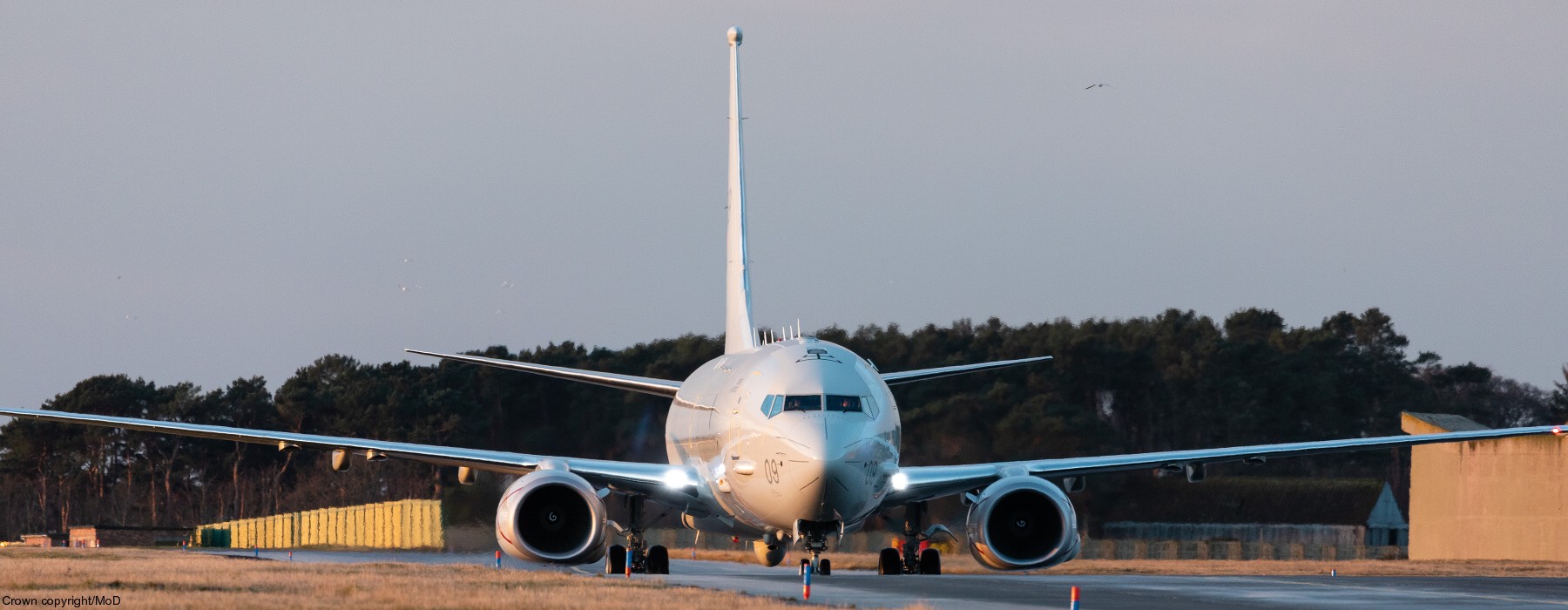 ZP809 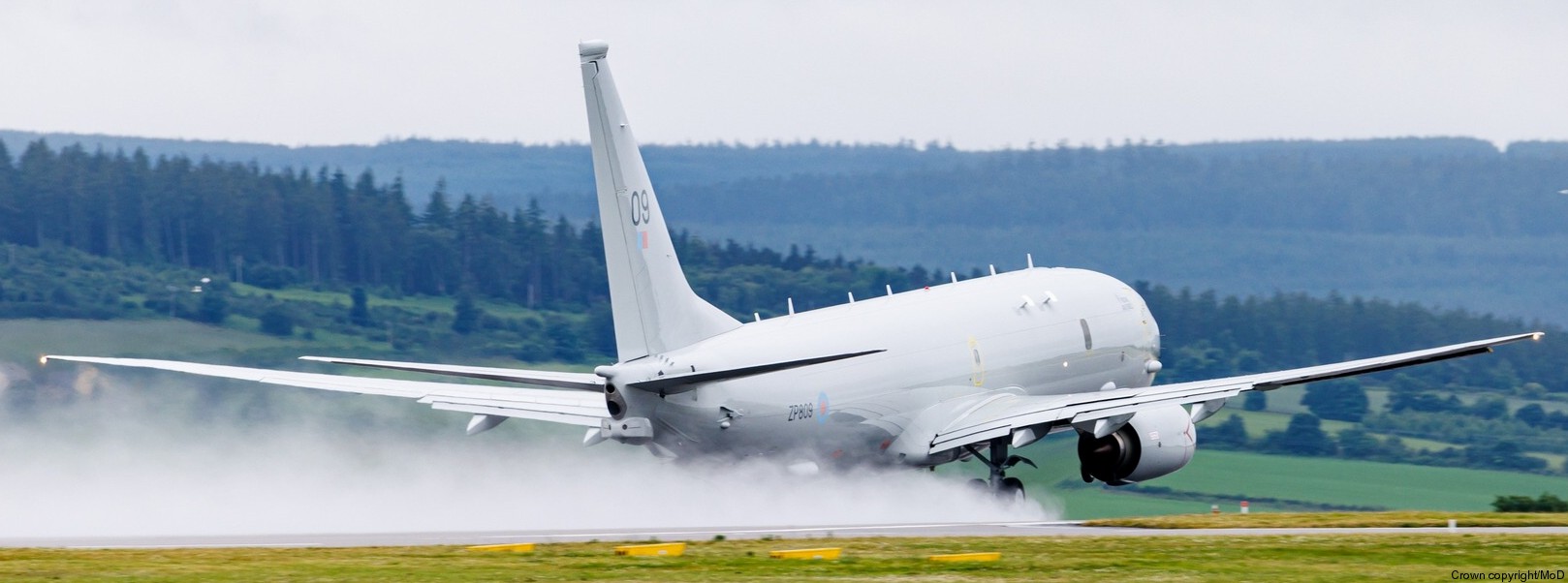 ZP809 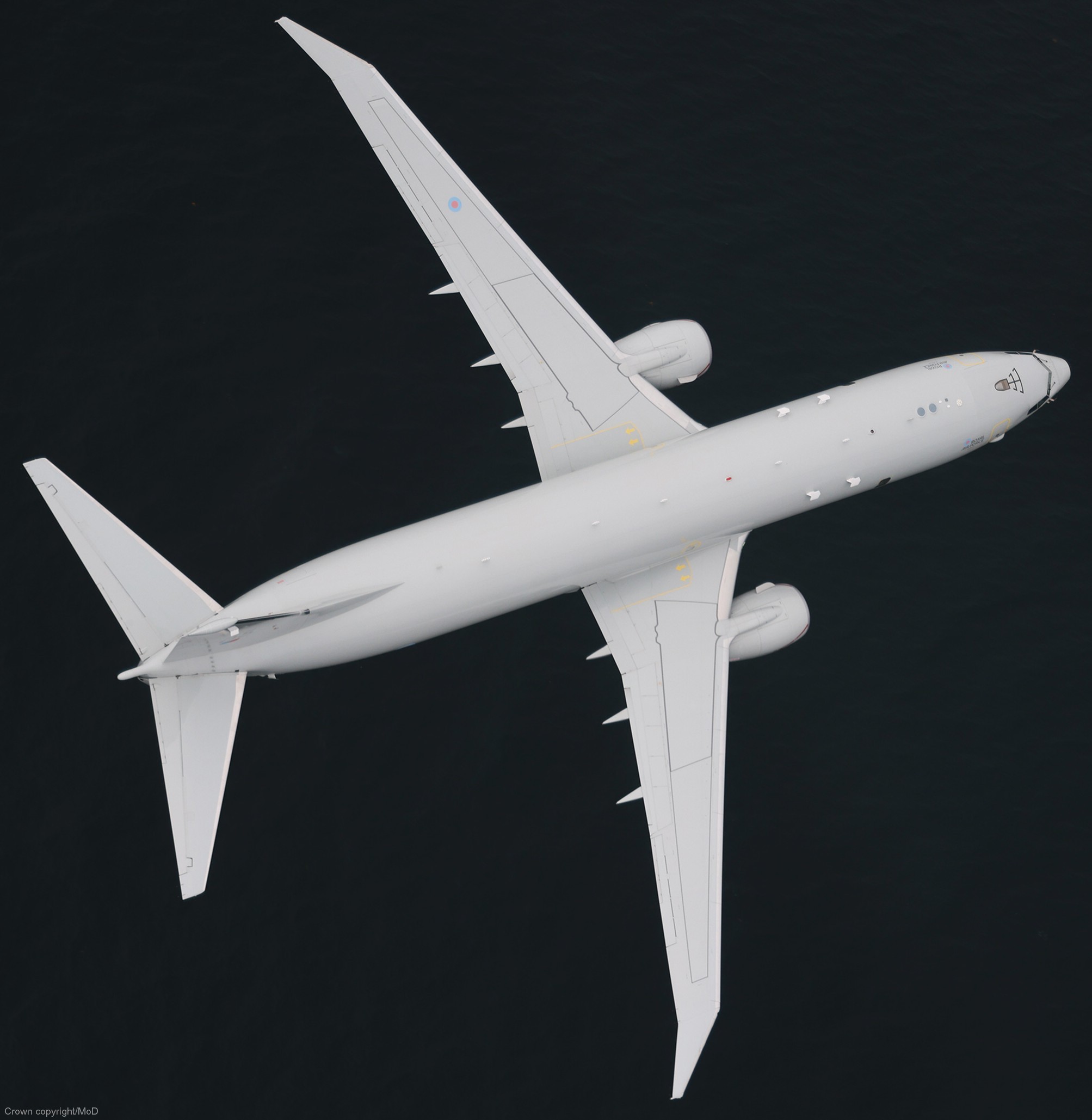 |
||||
|
|
seaforces.org
|
Royal
Navy start page
| |
